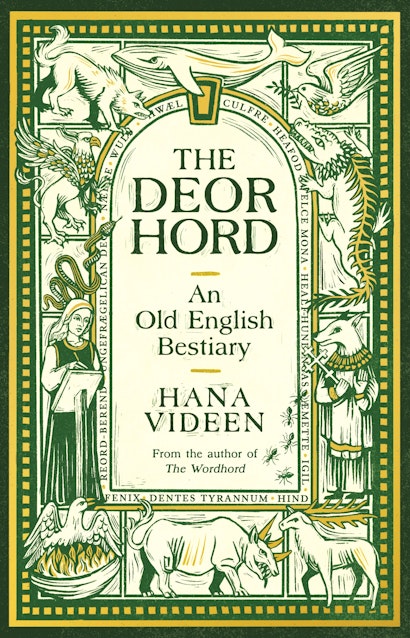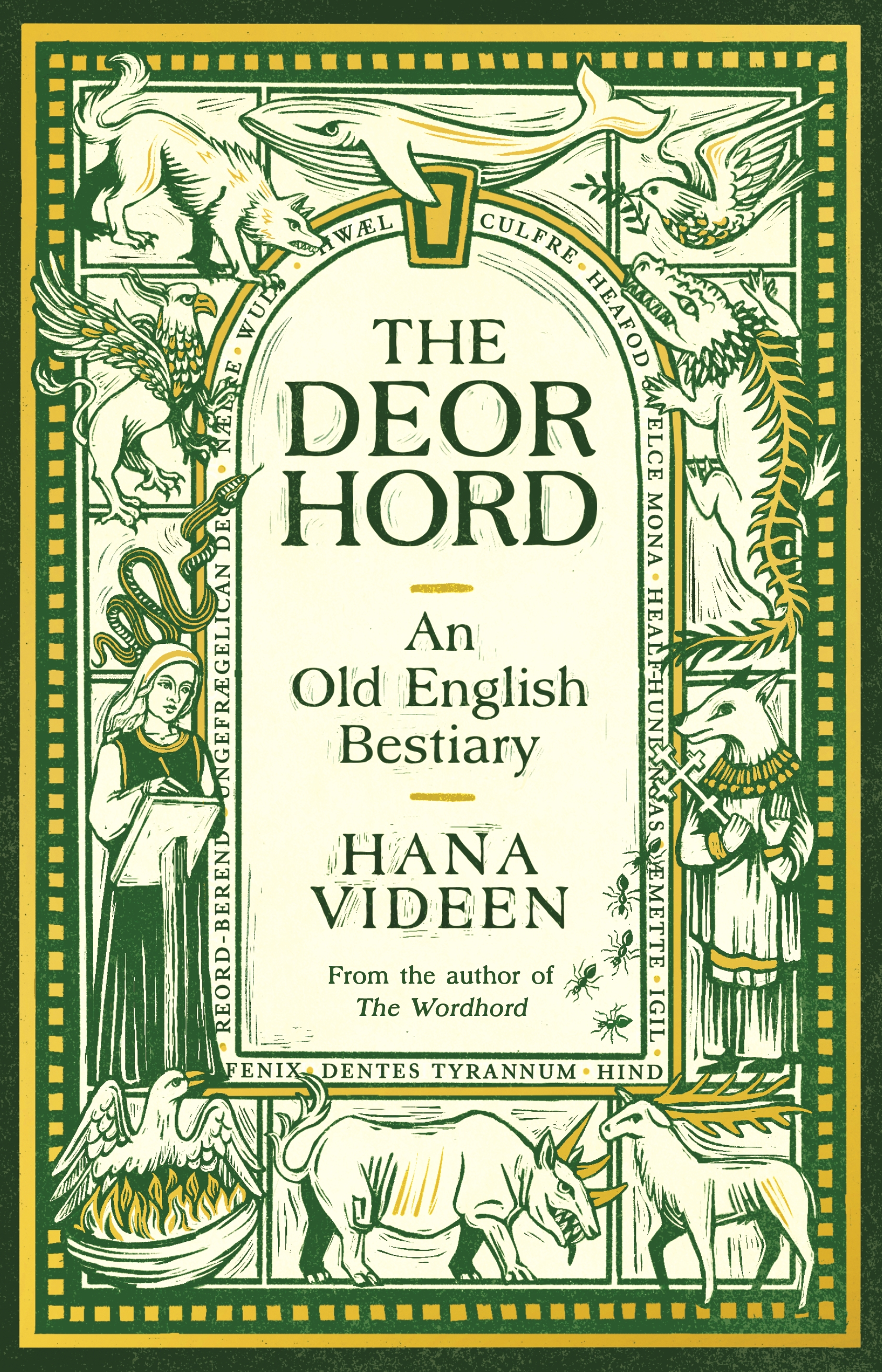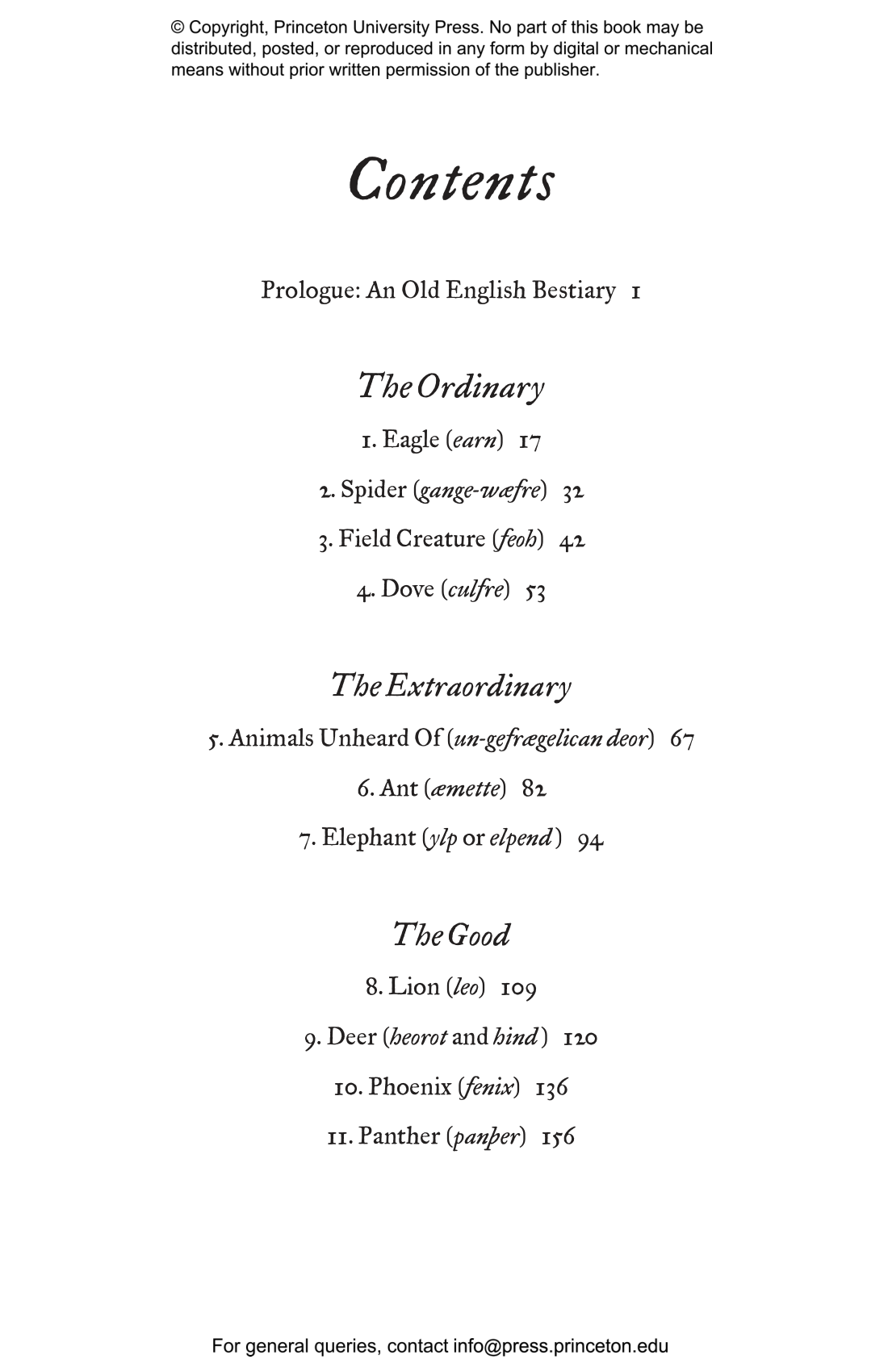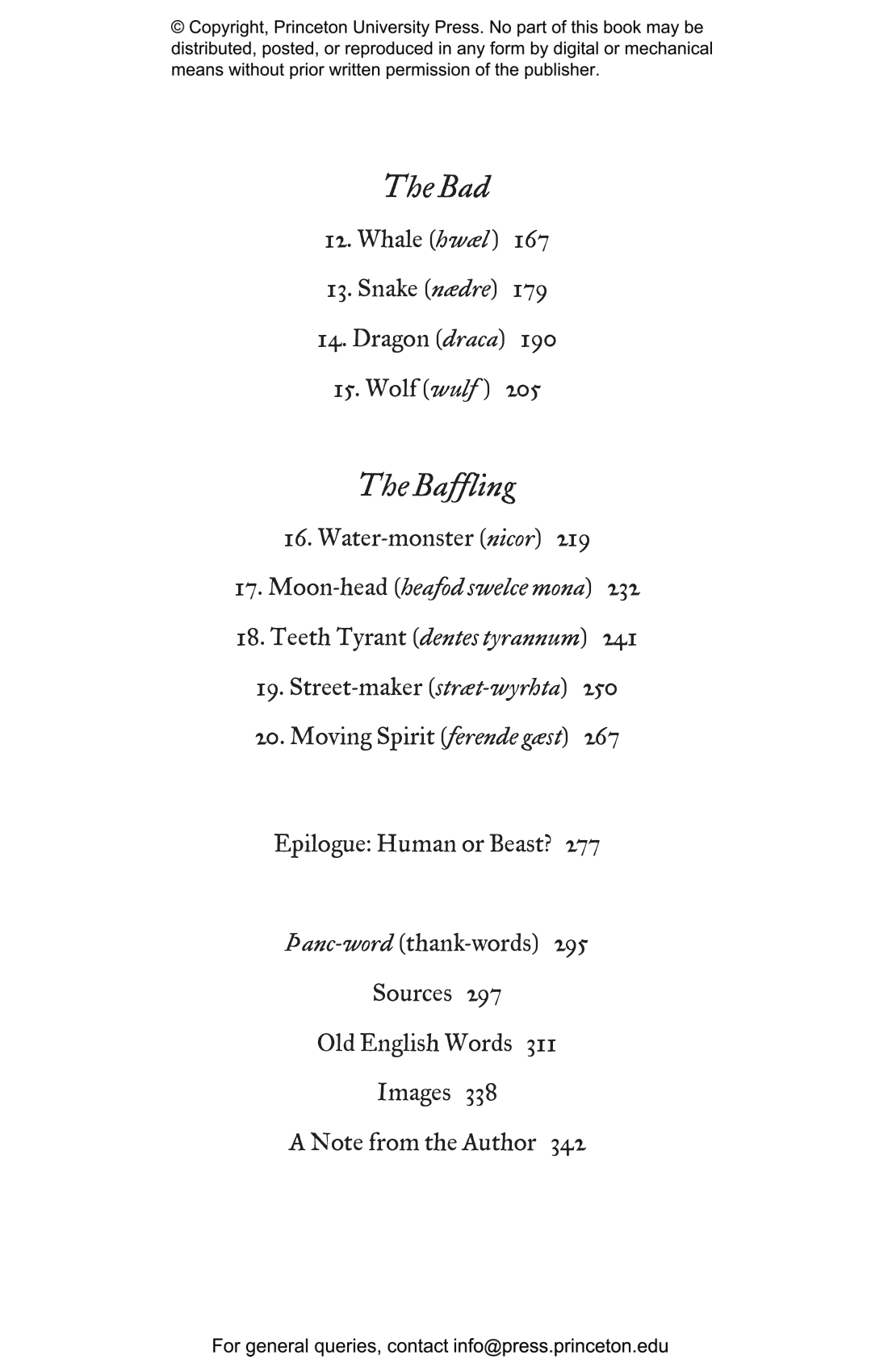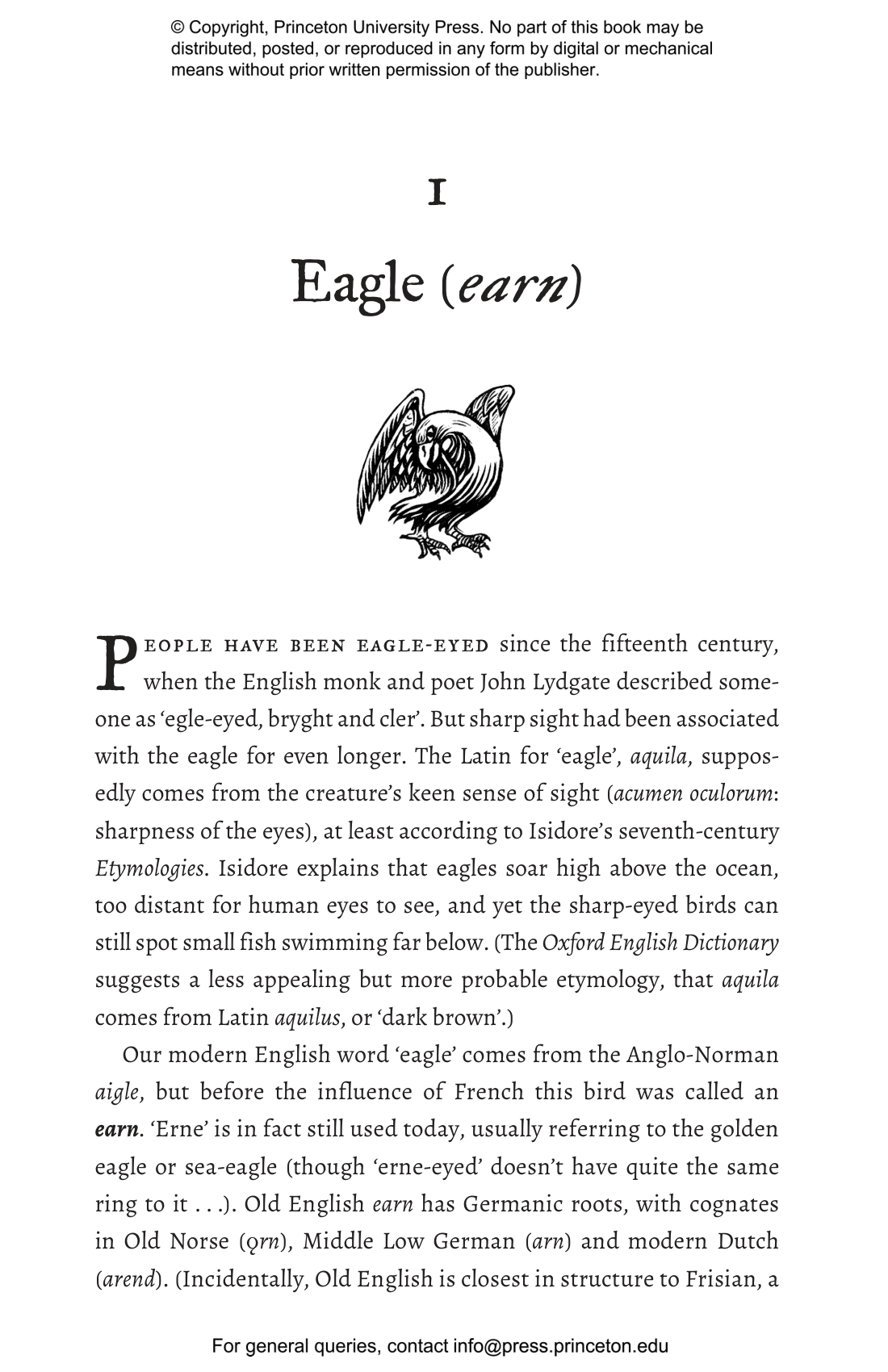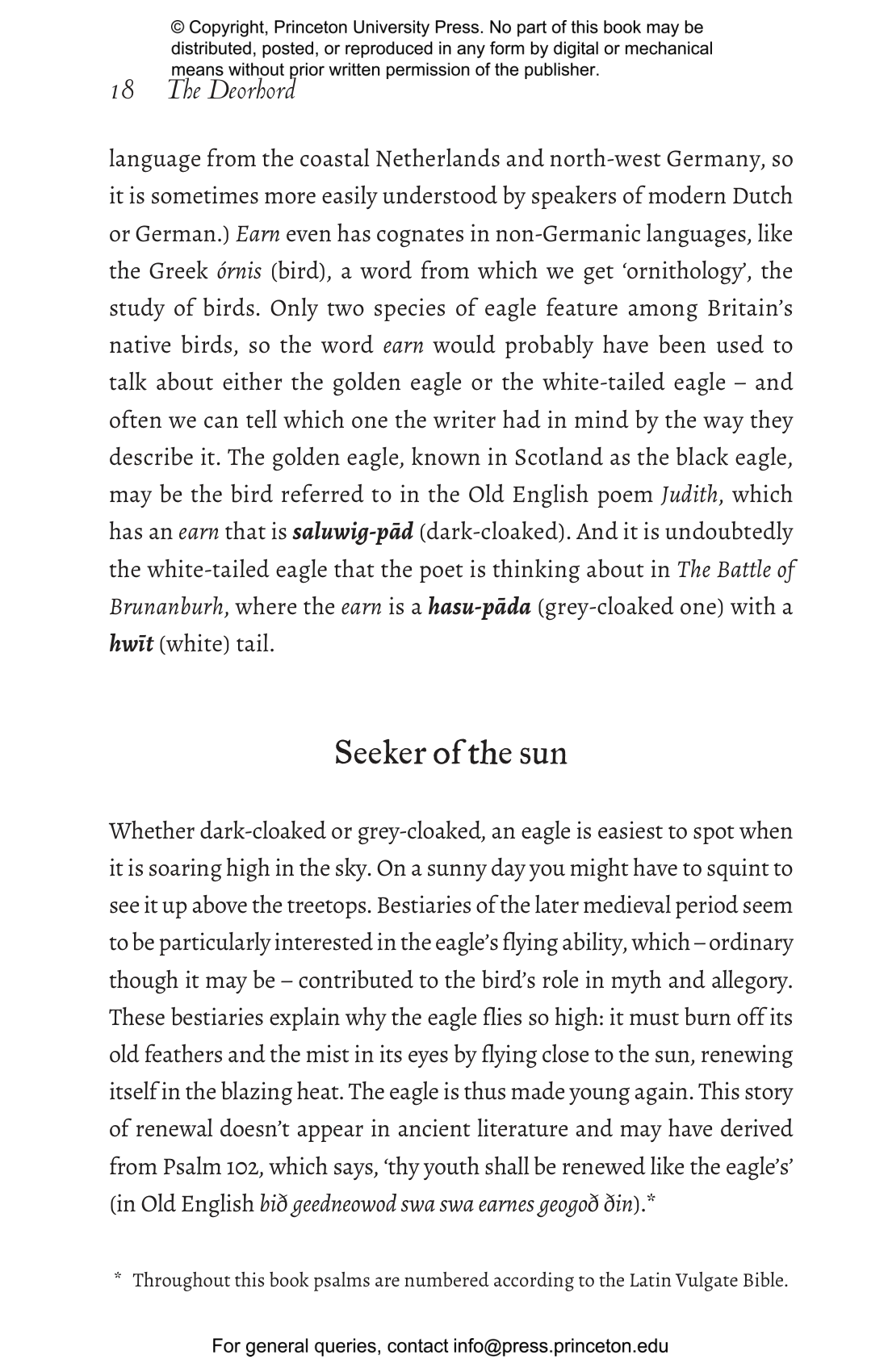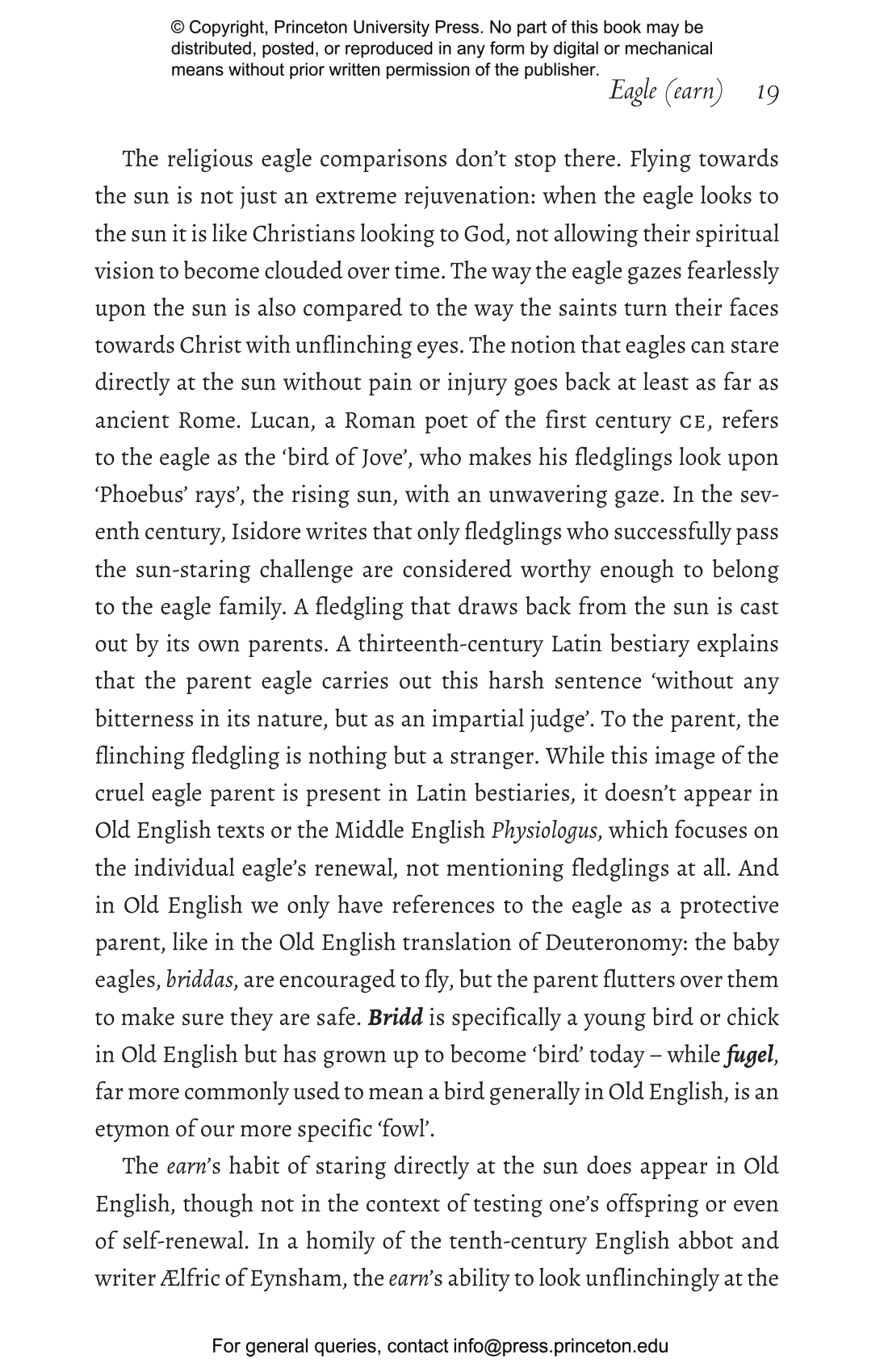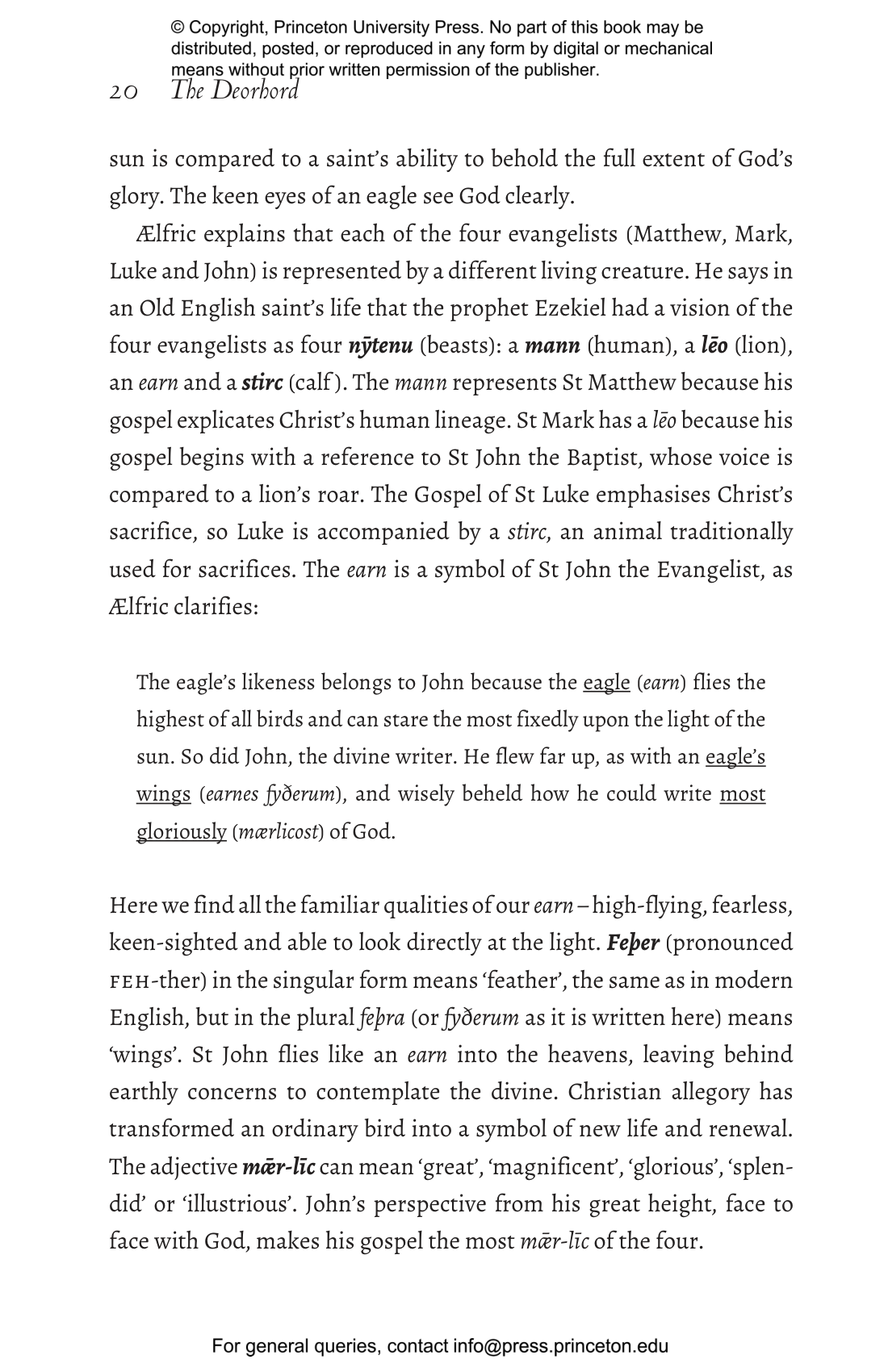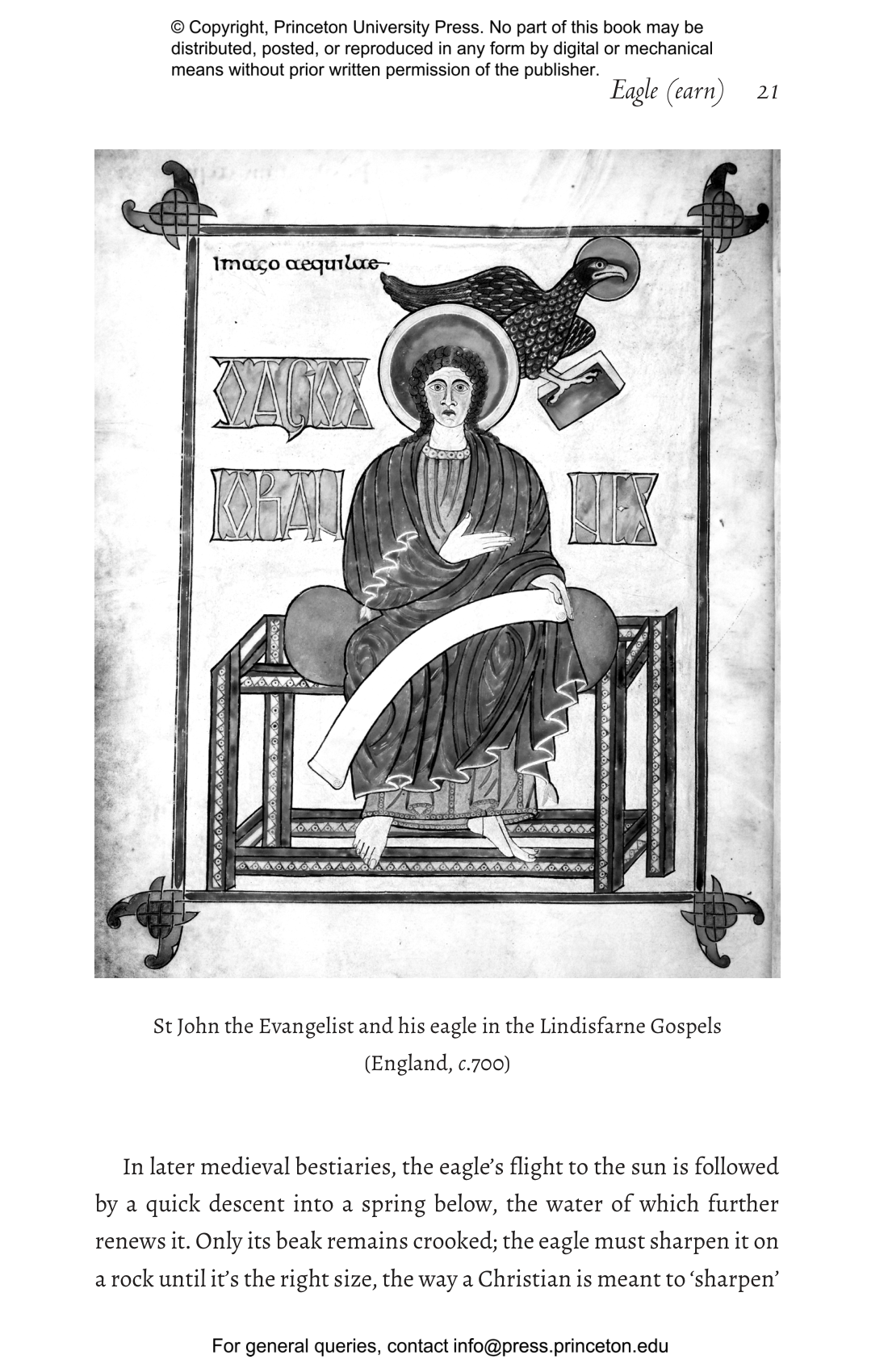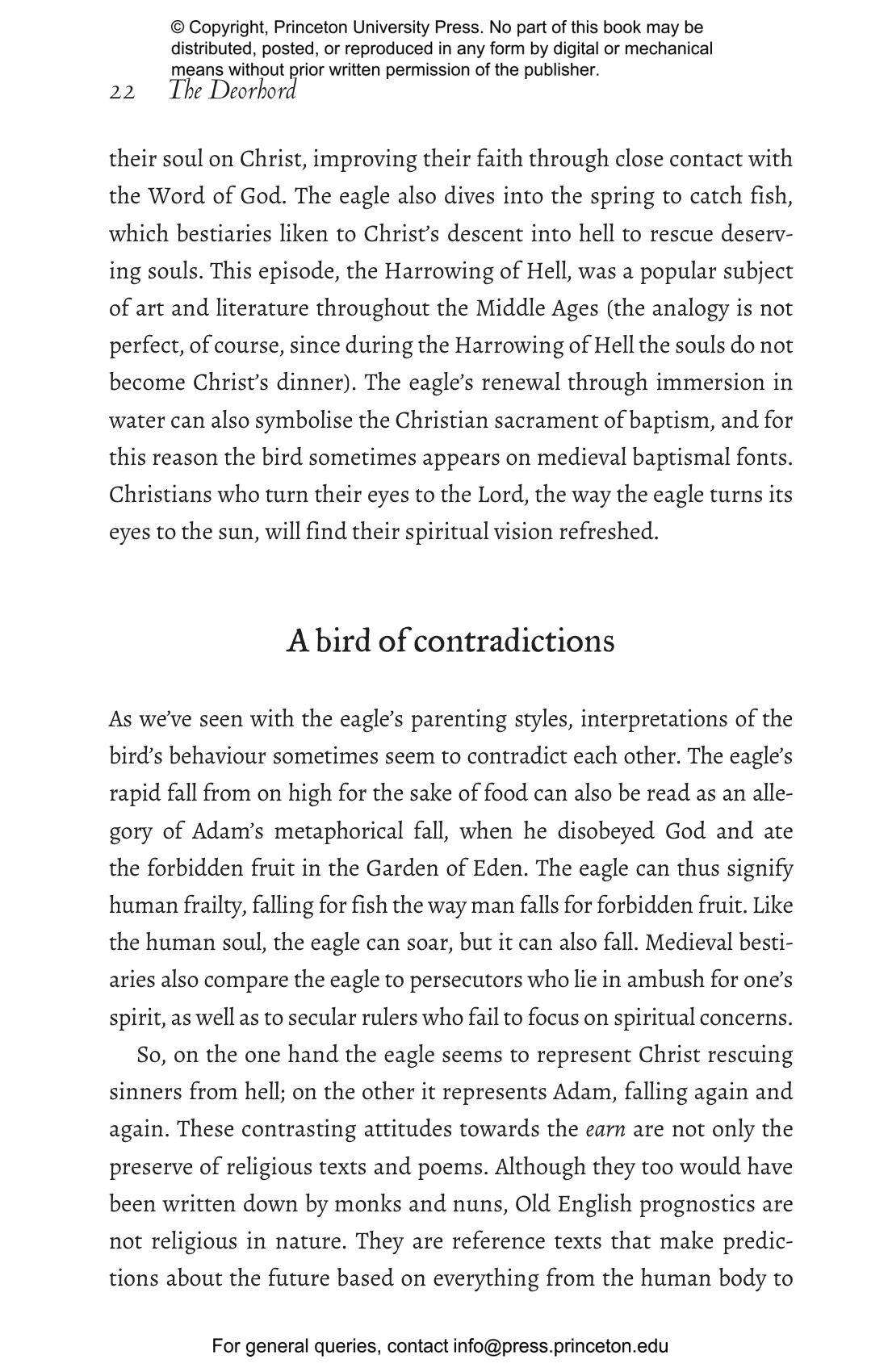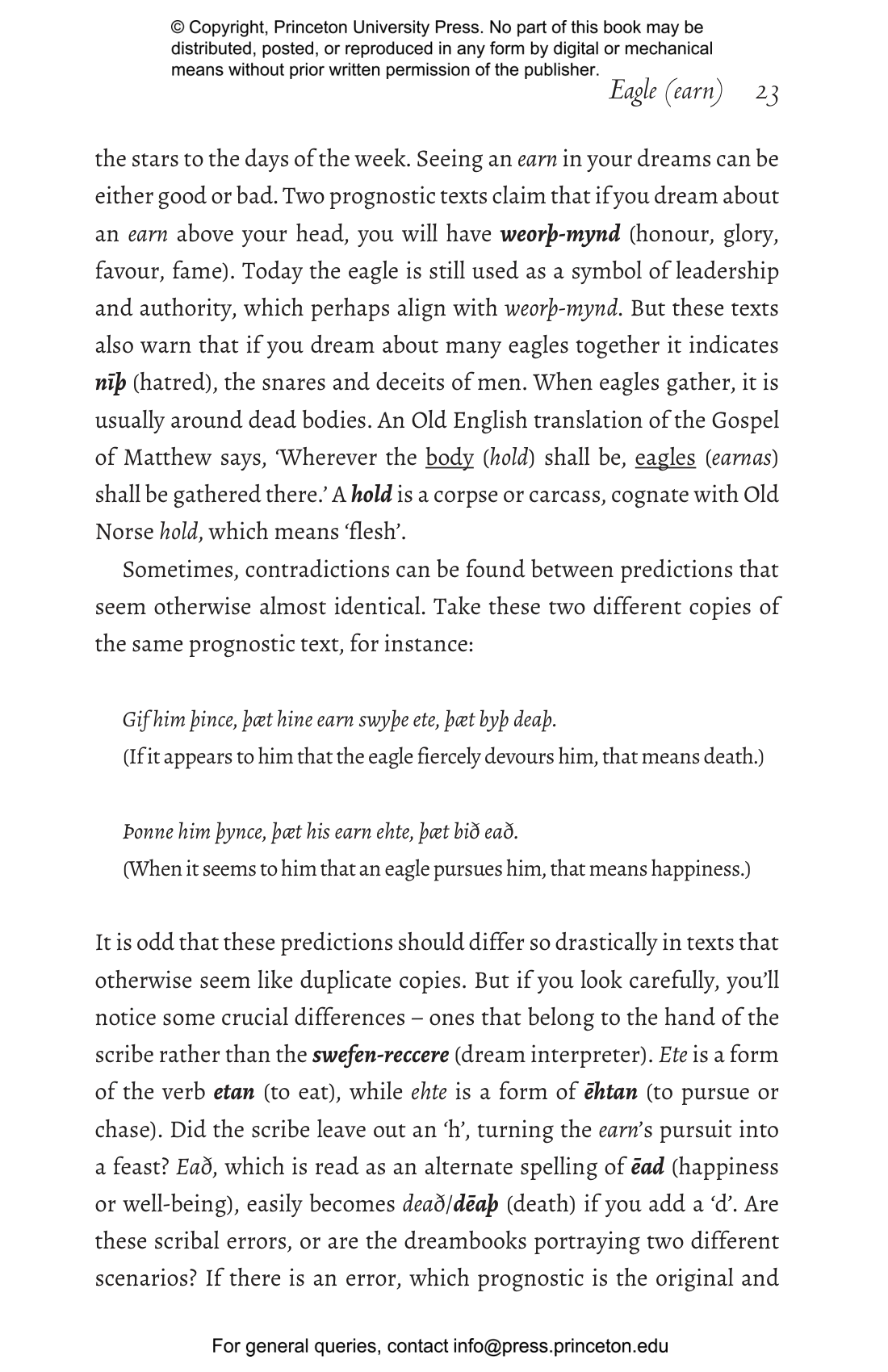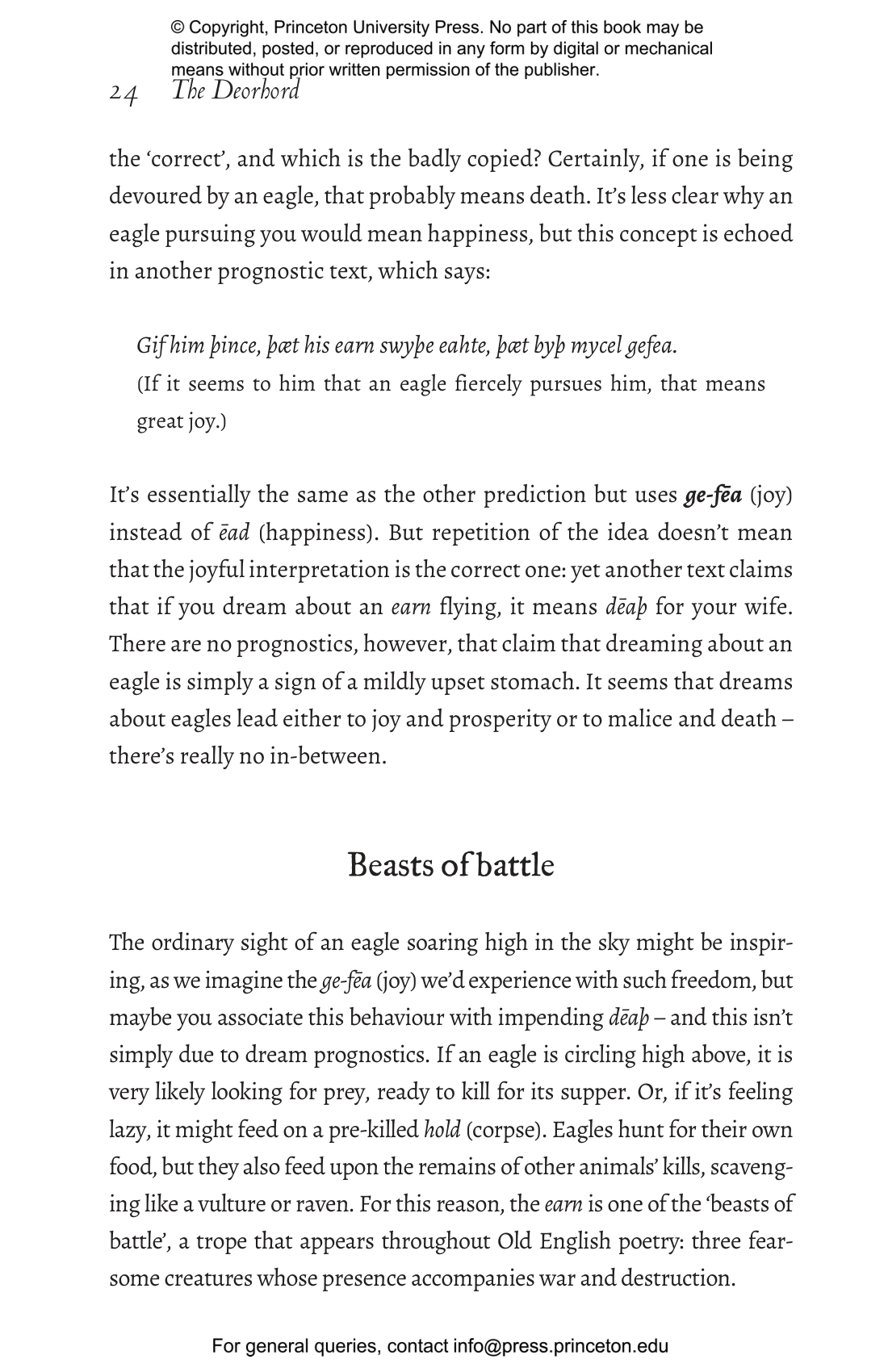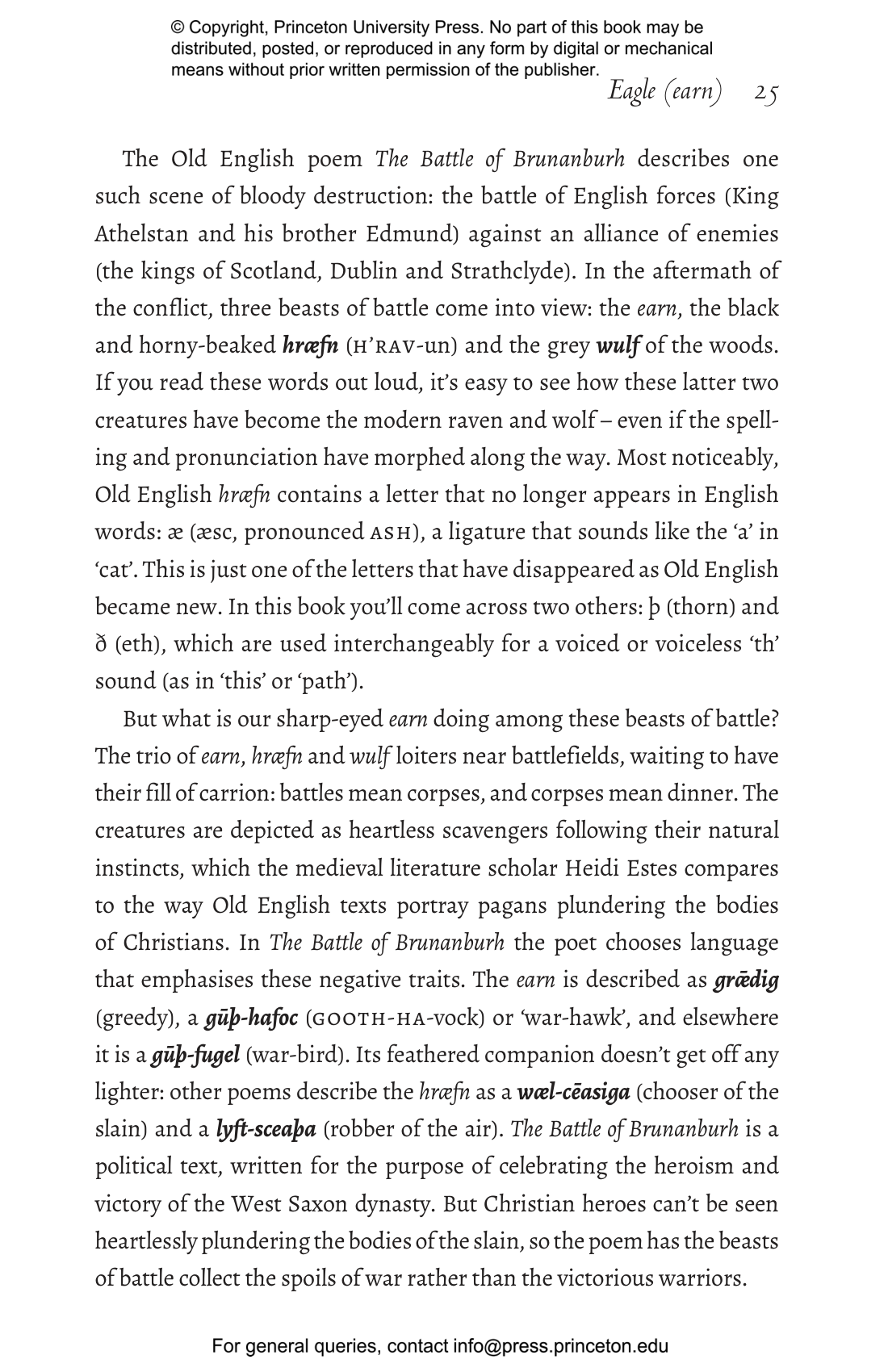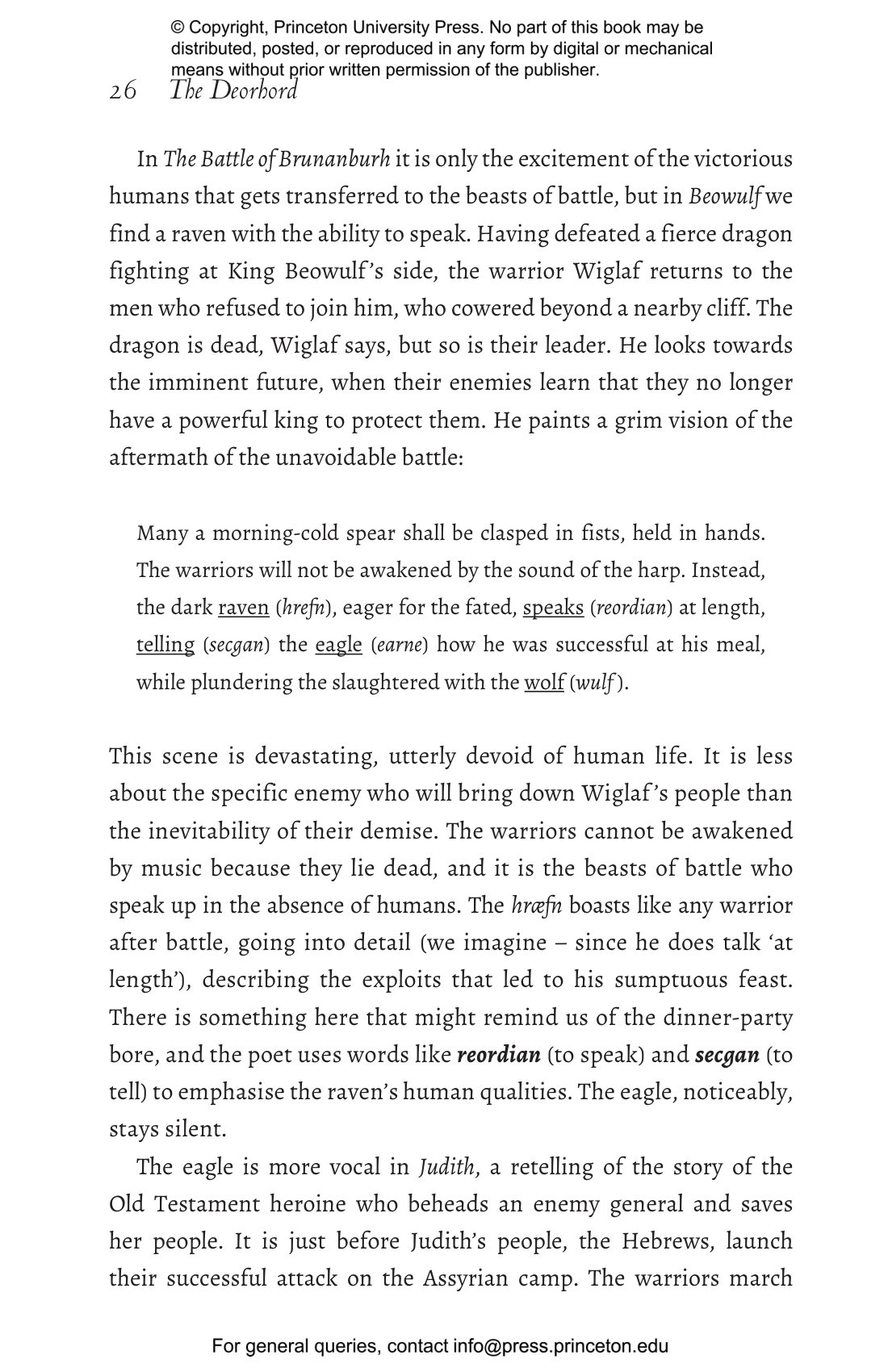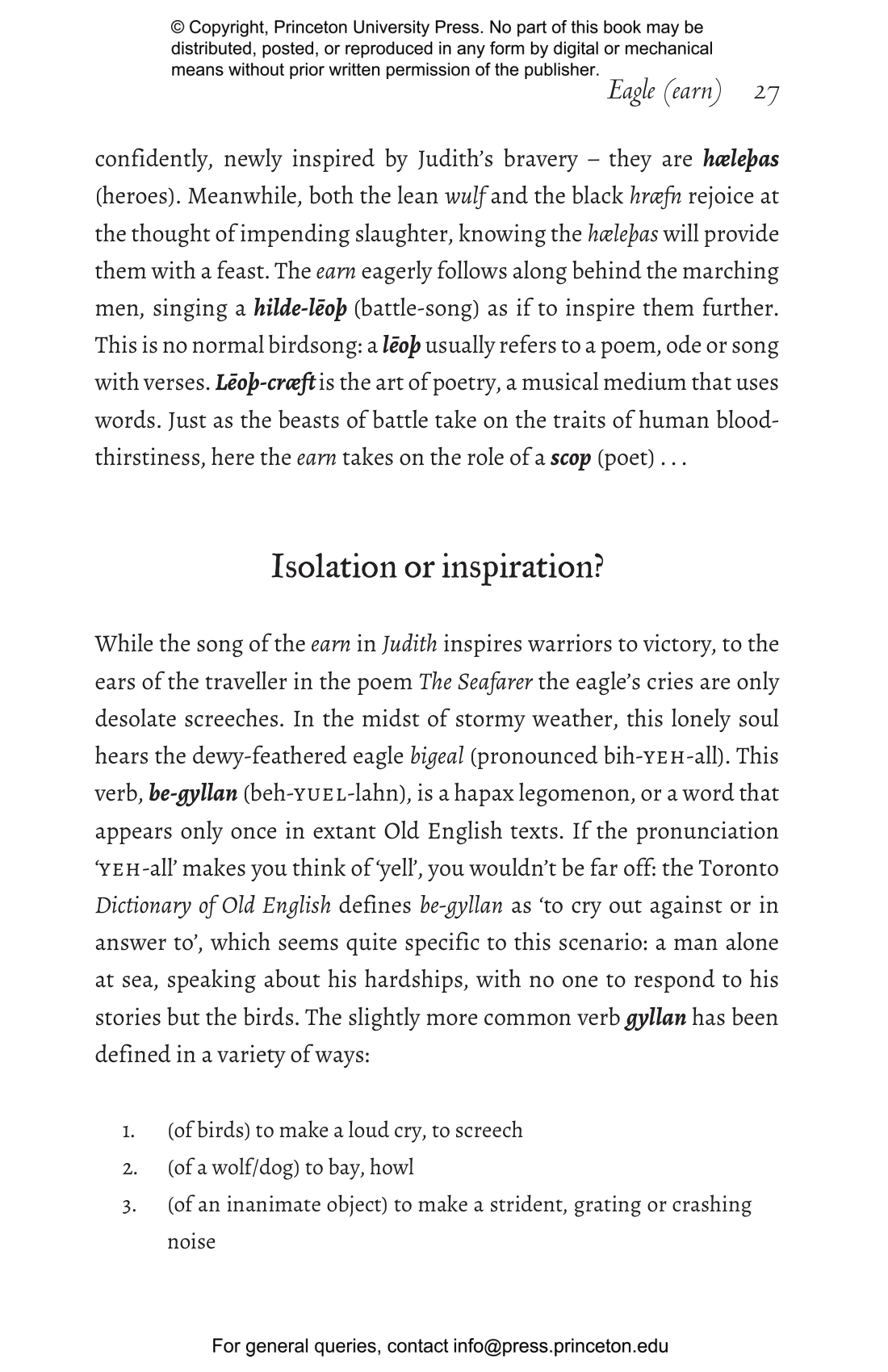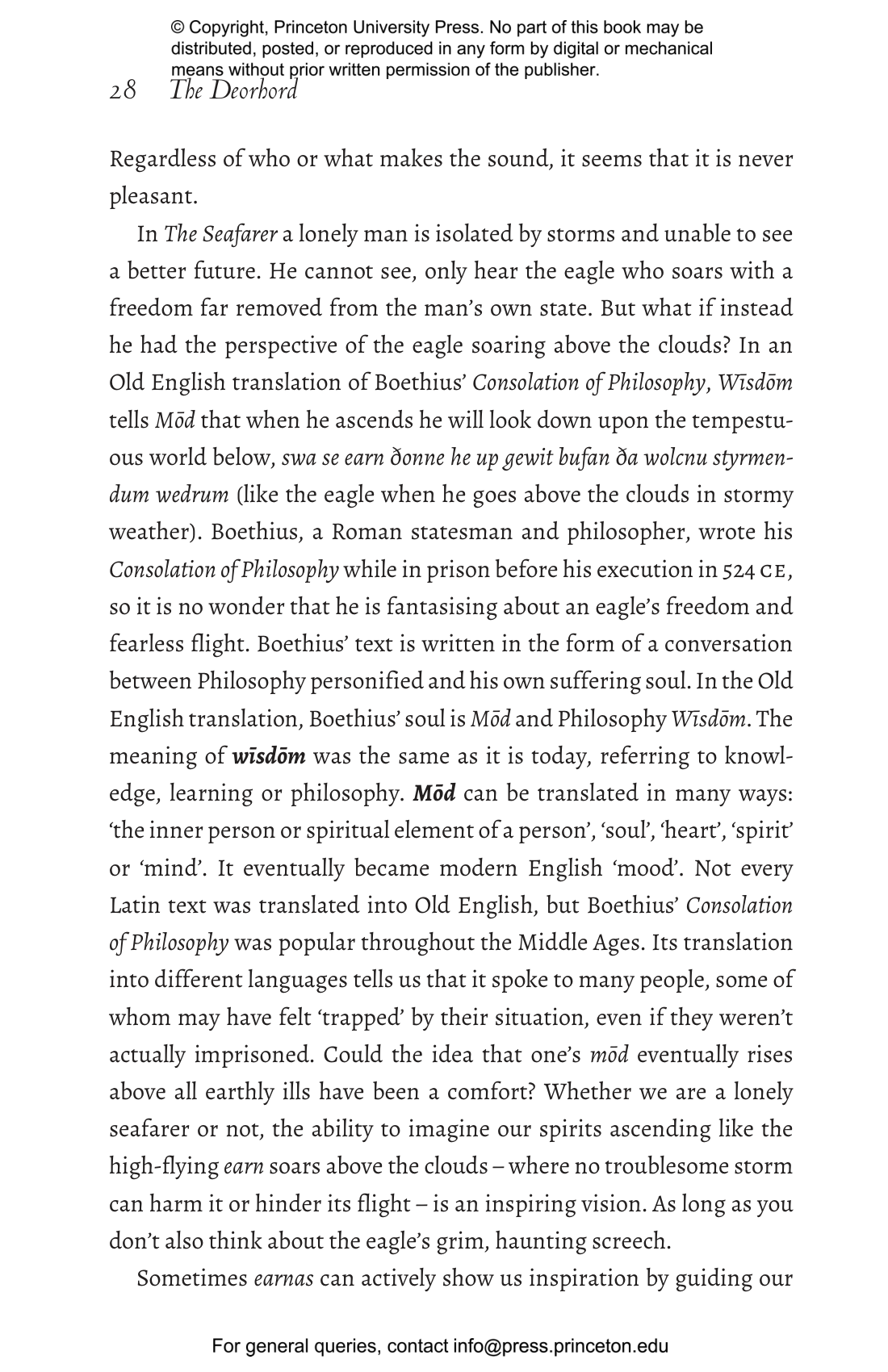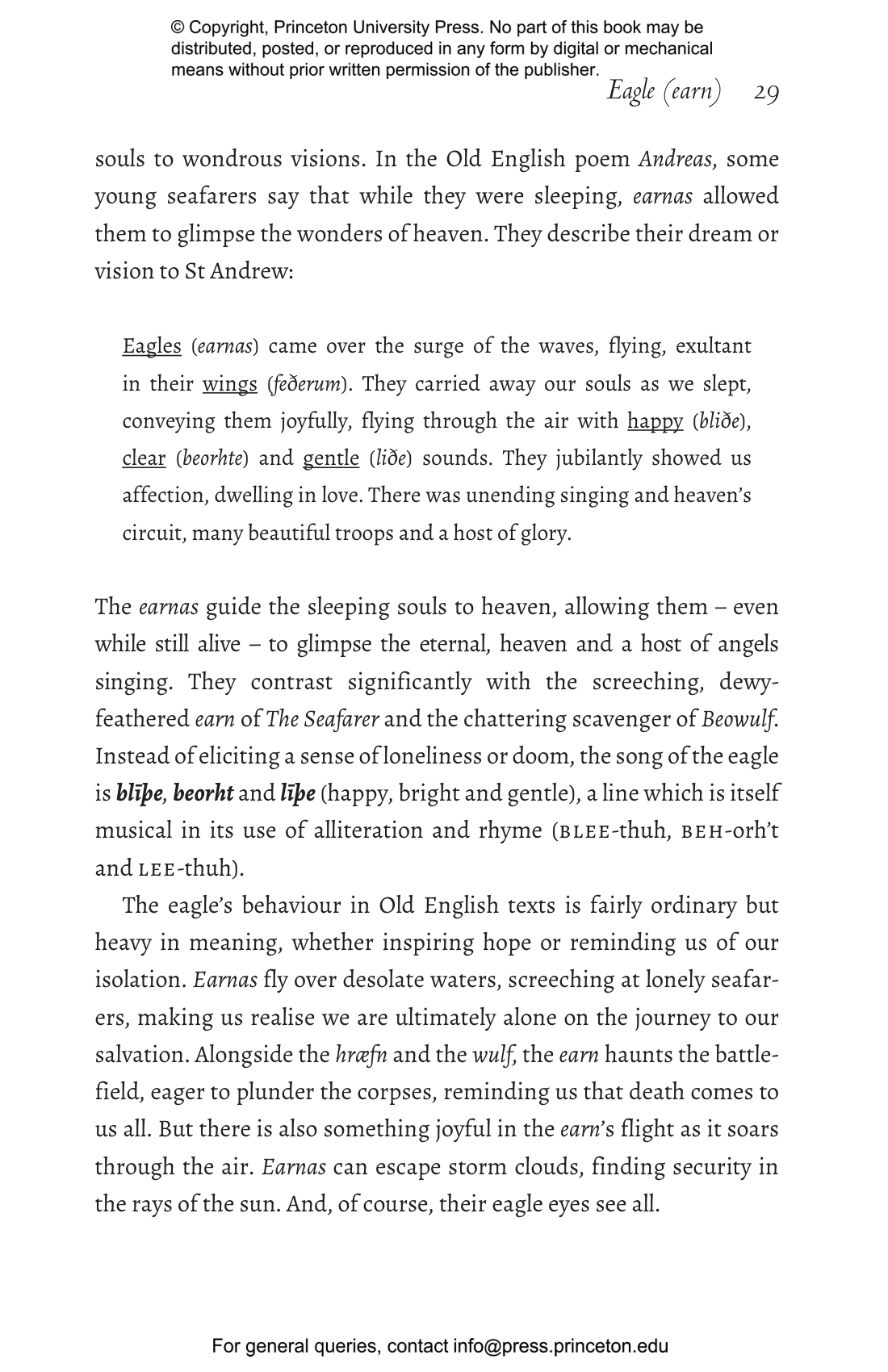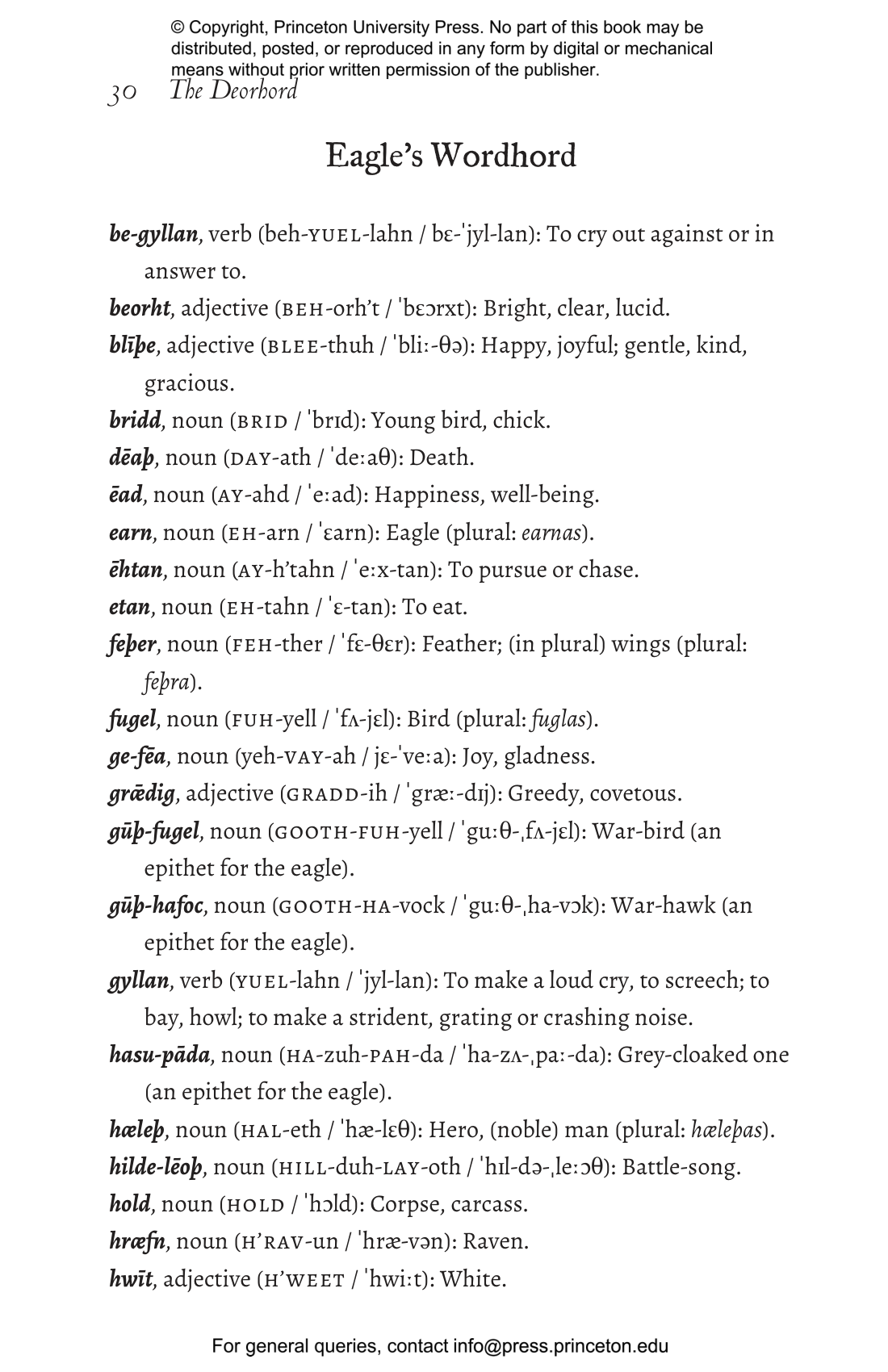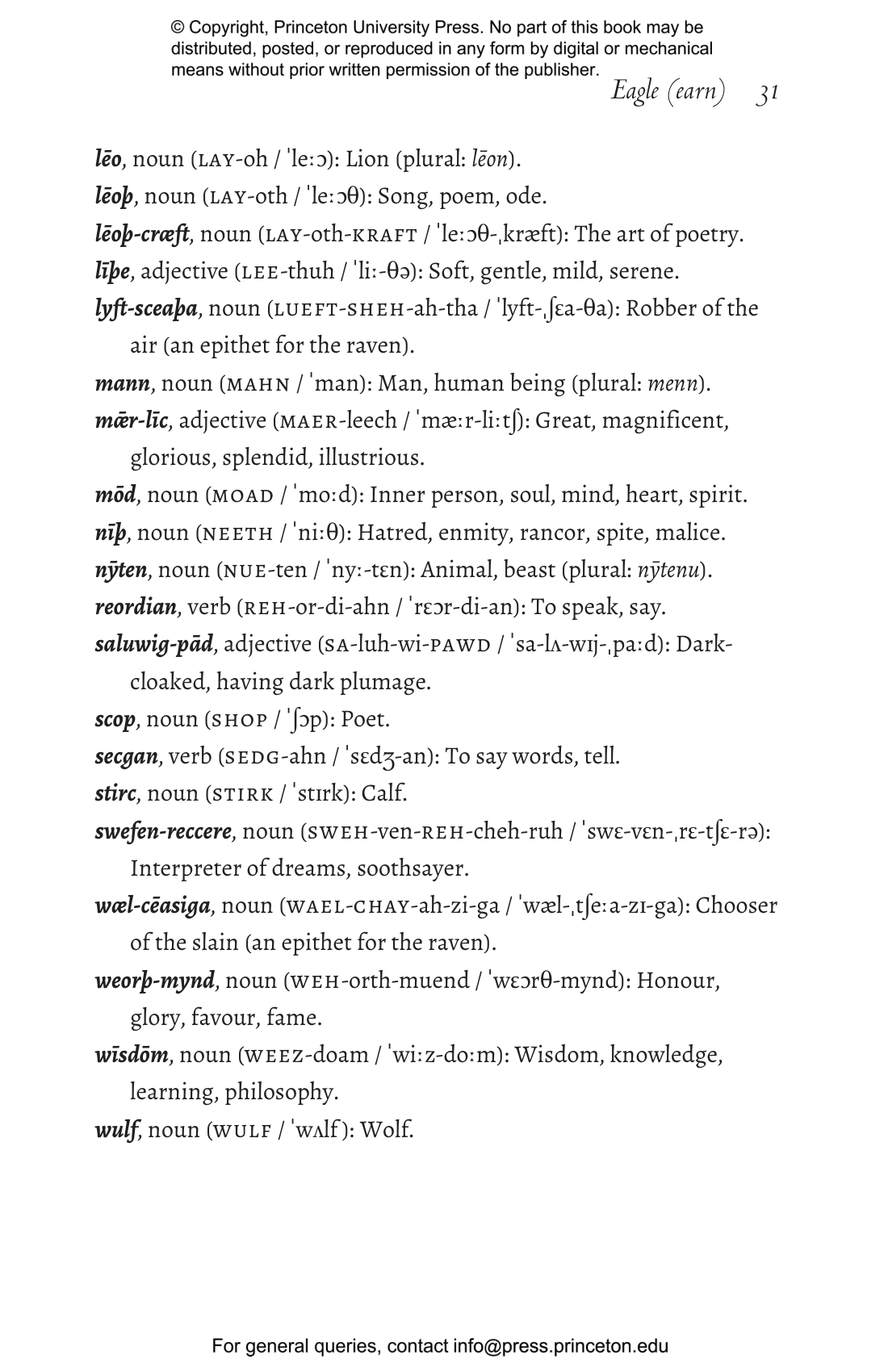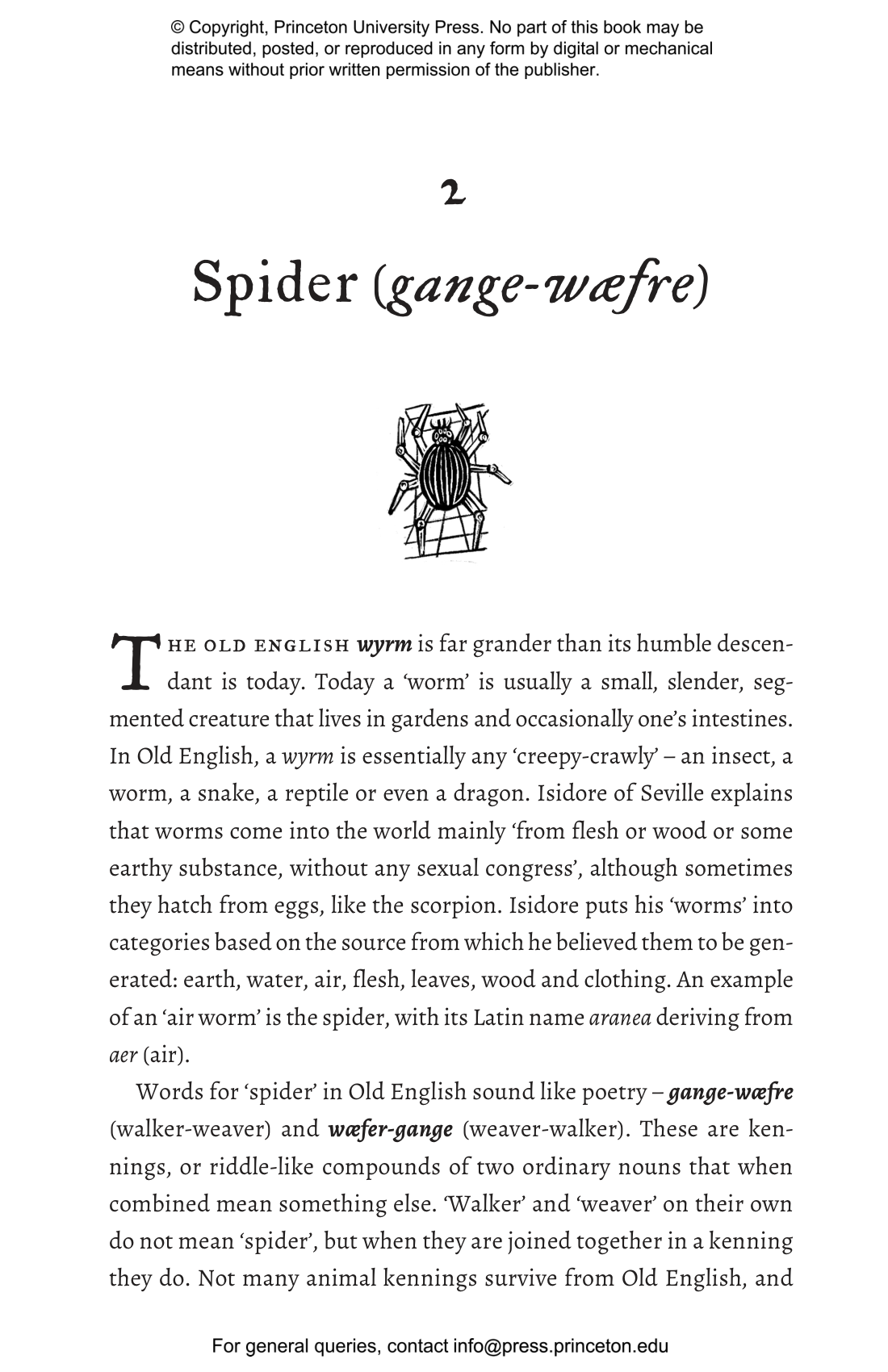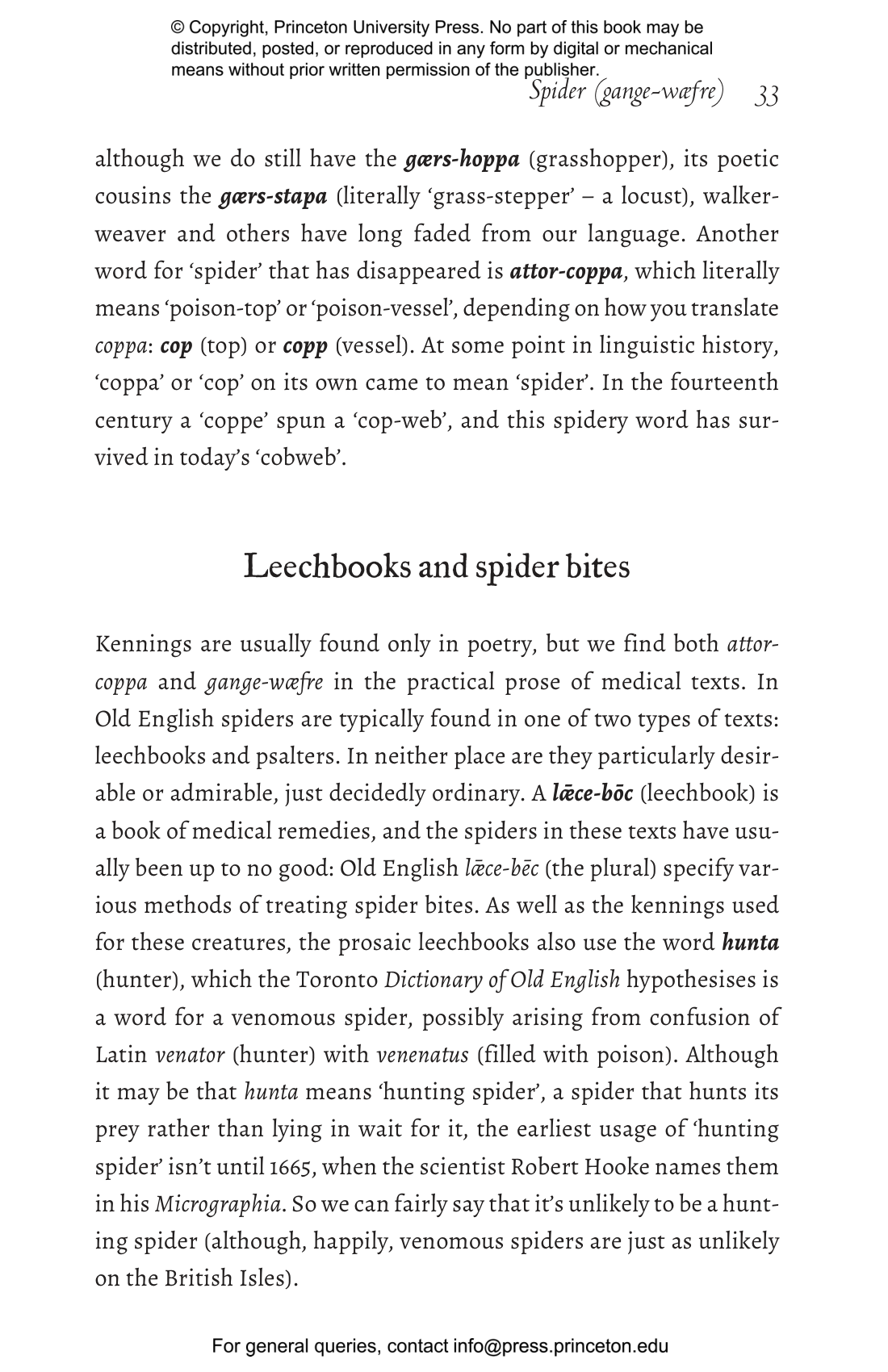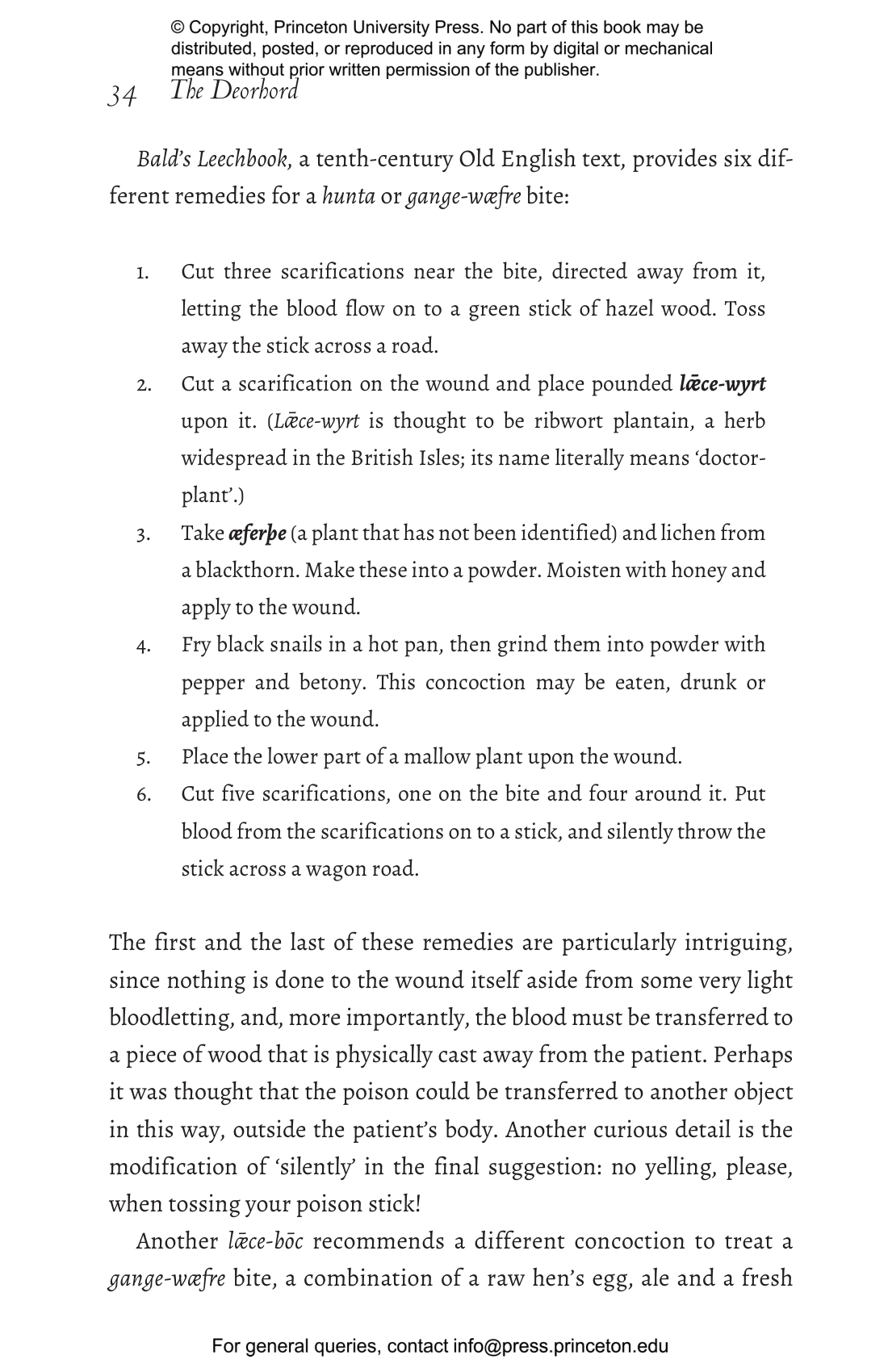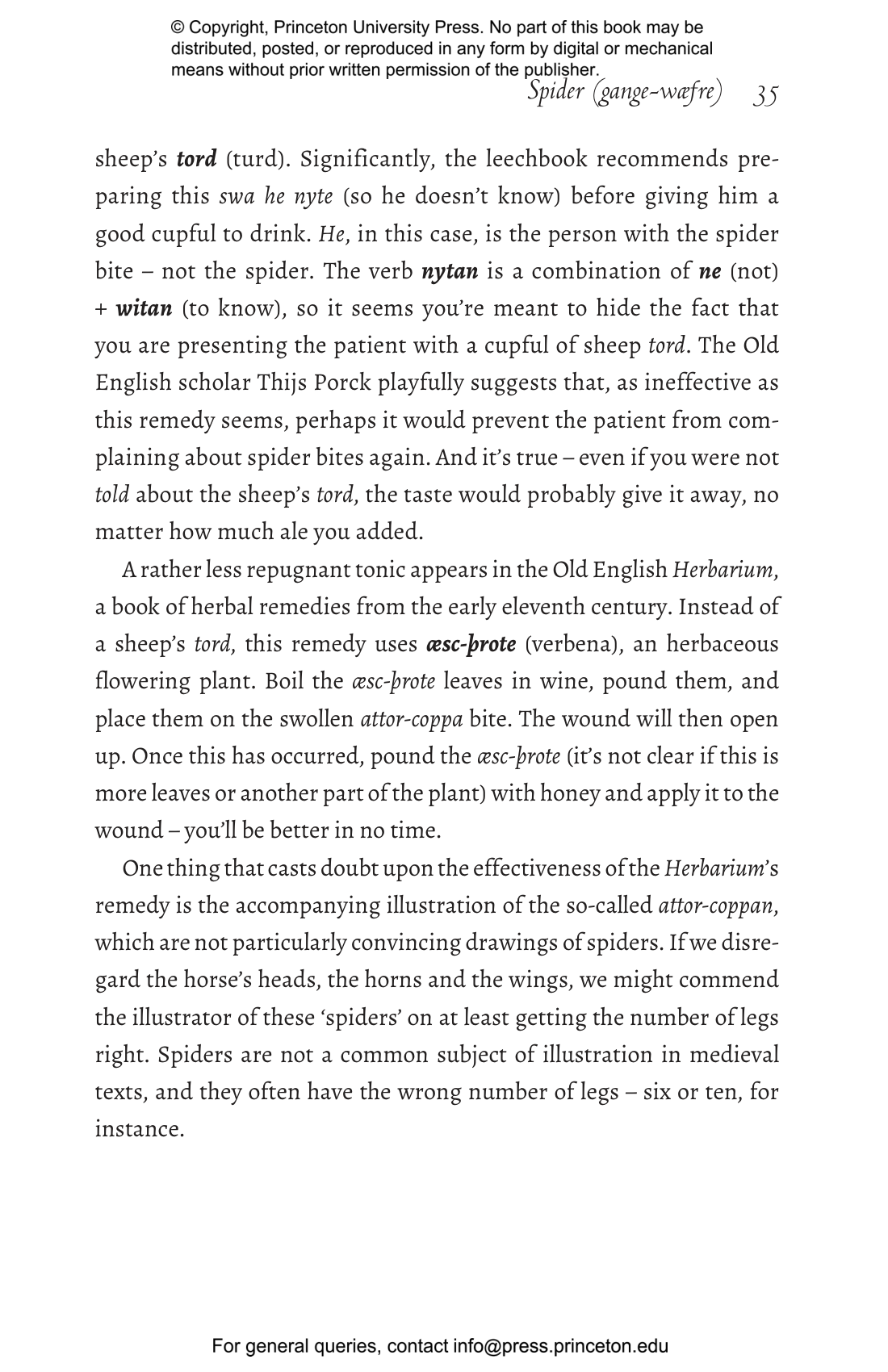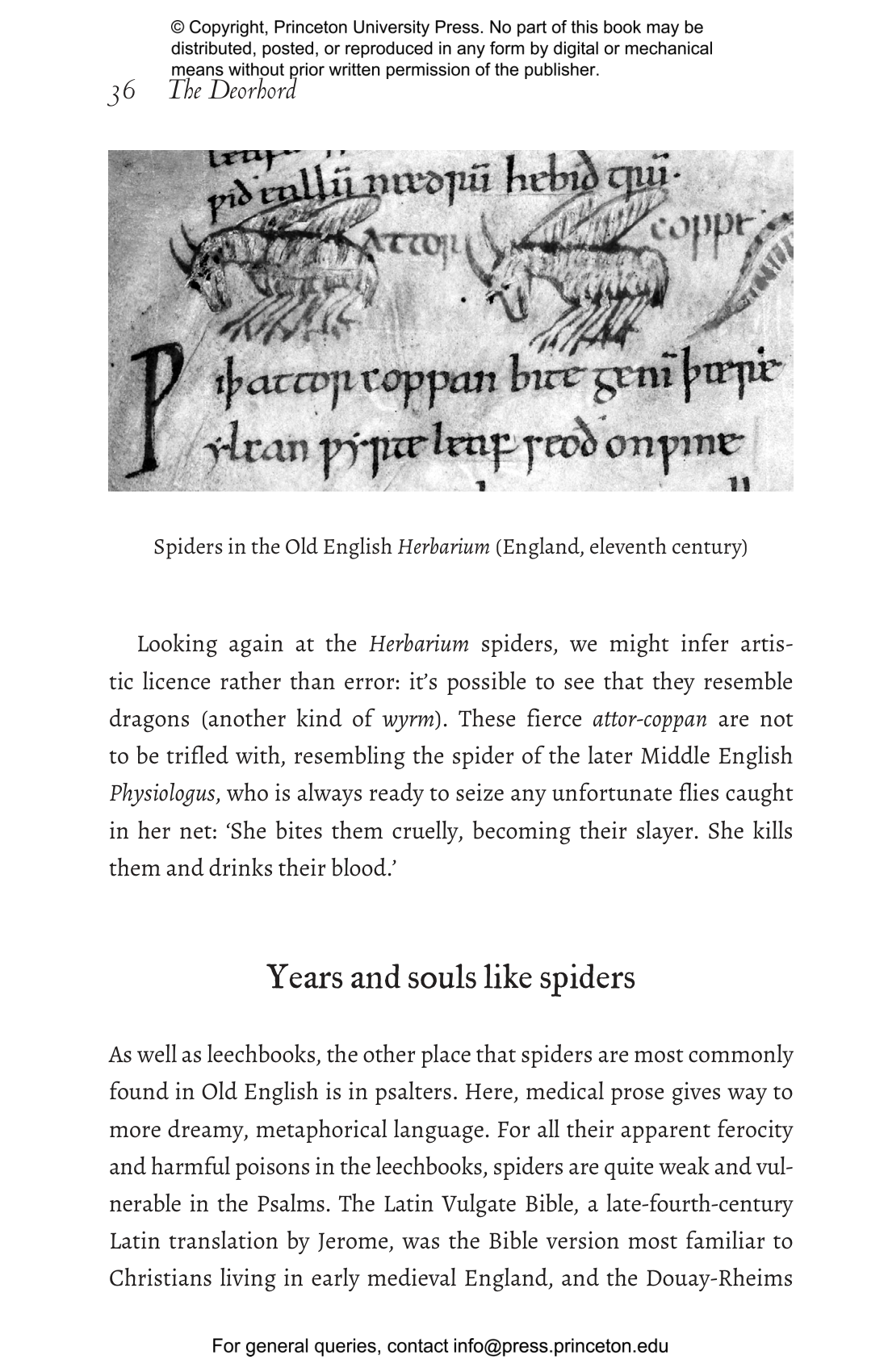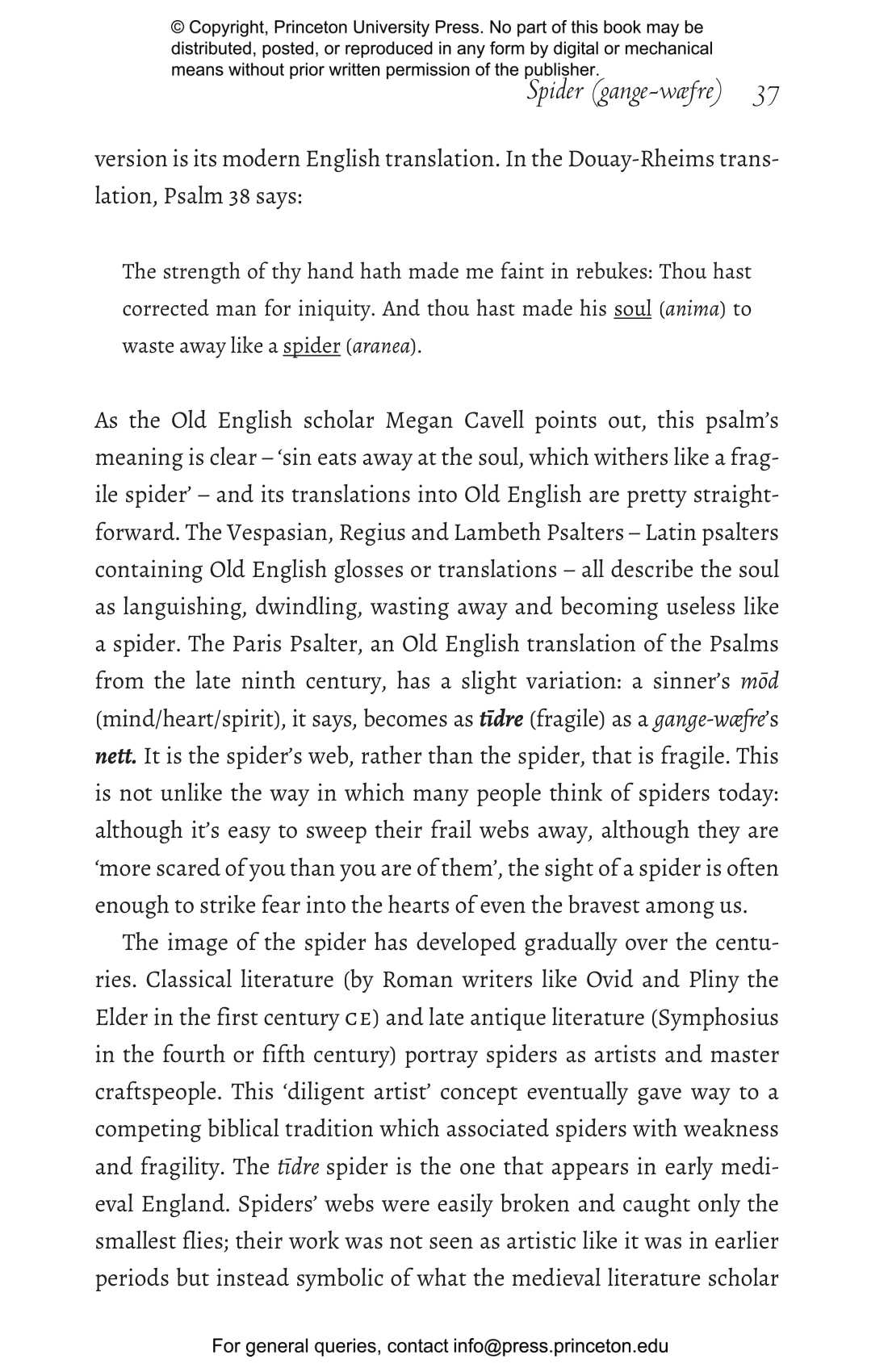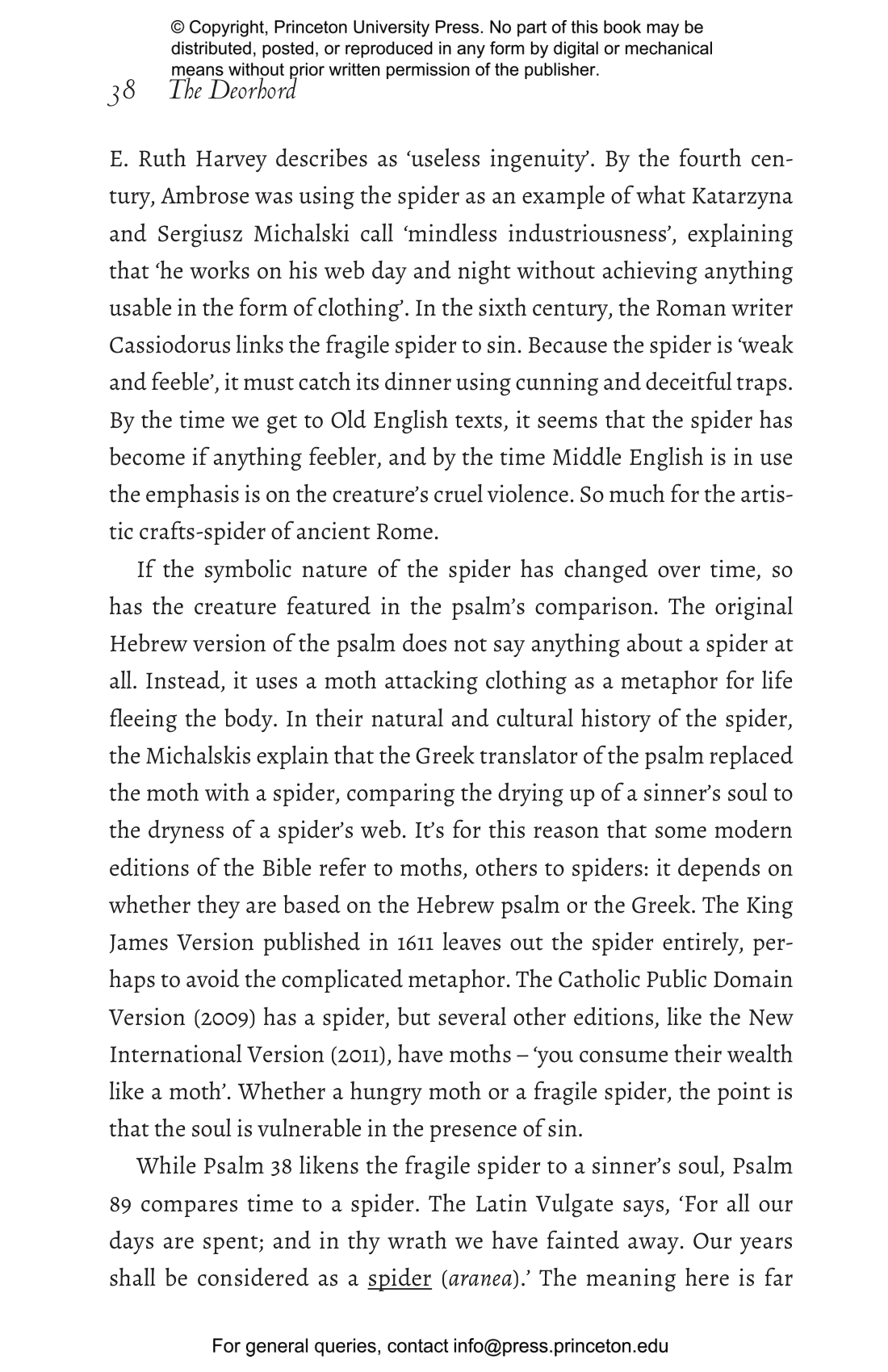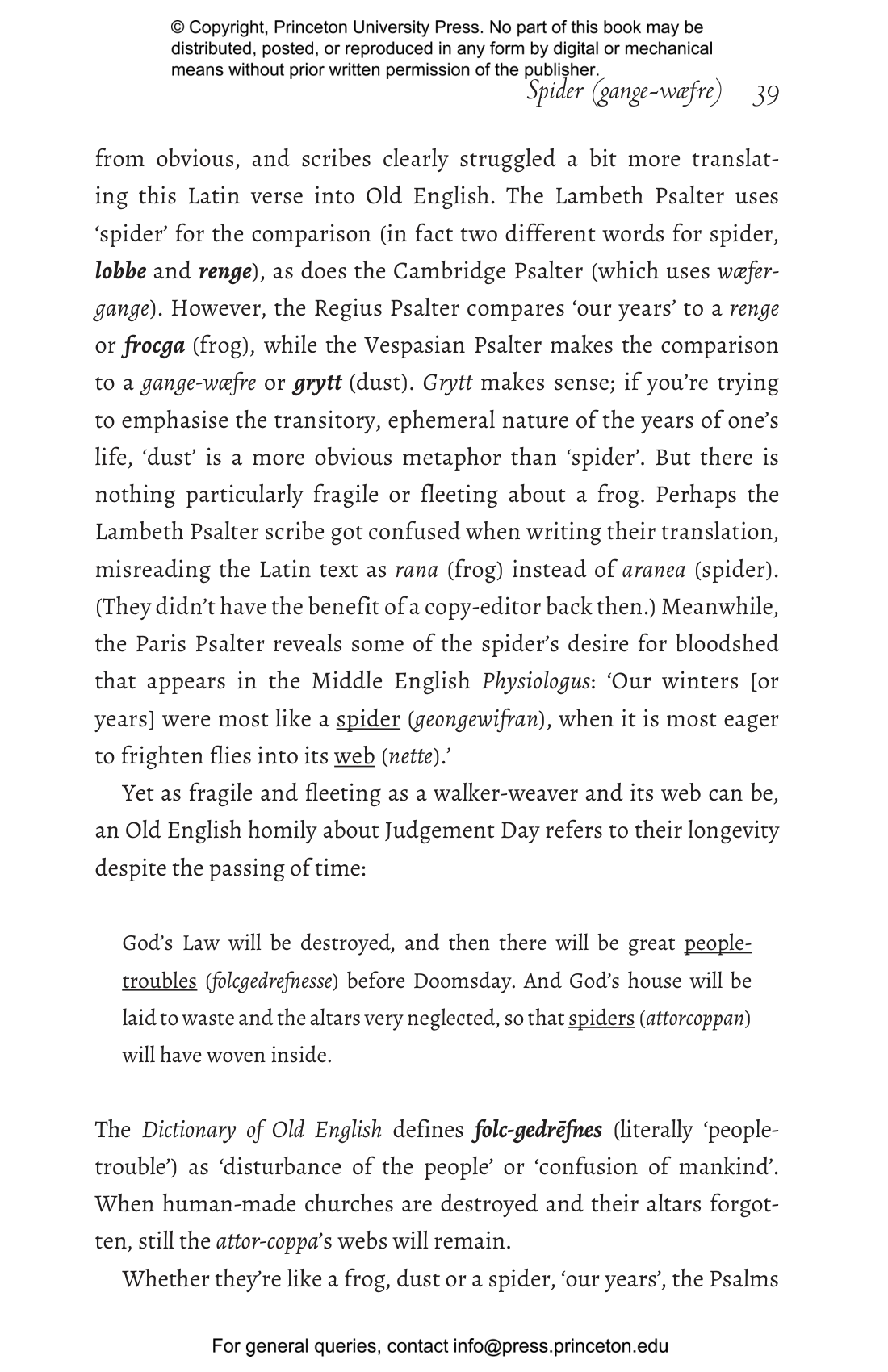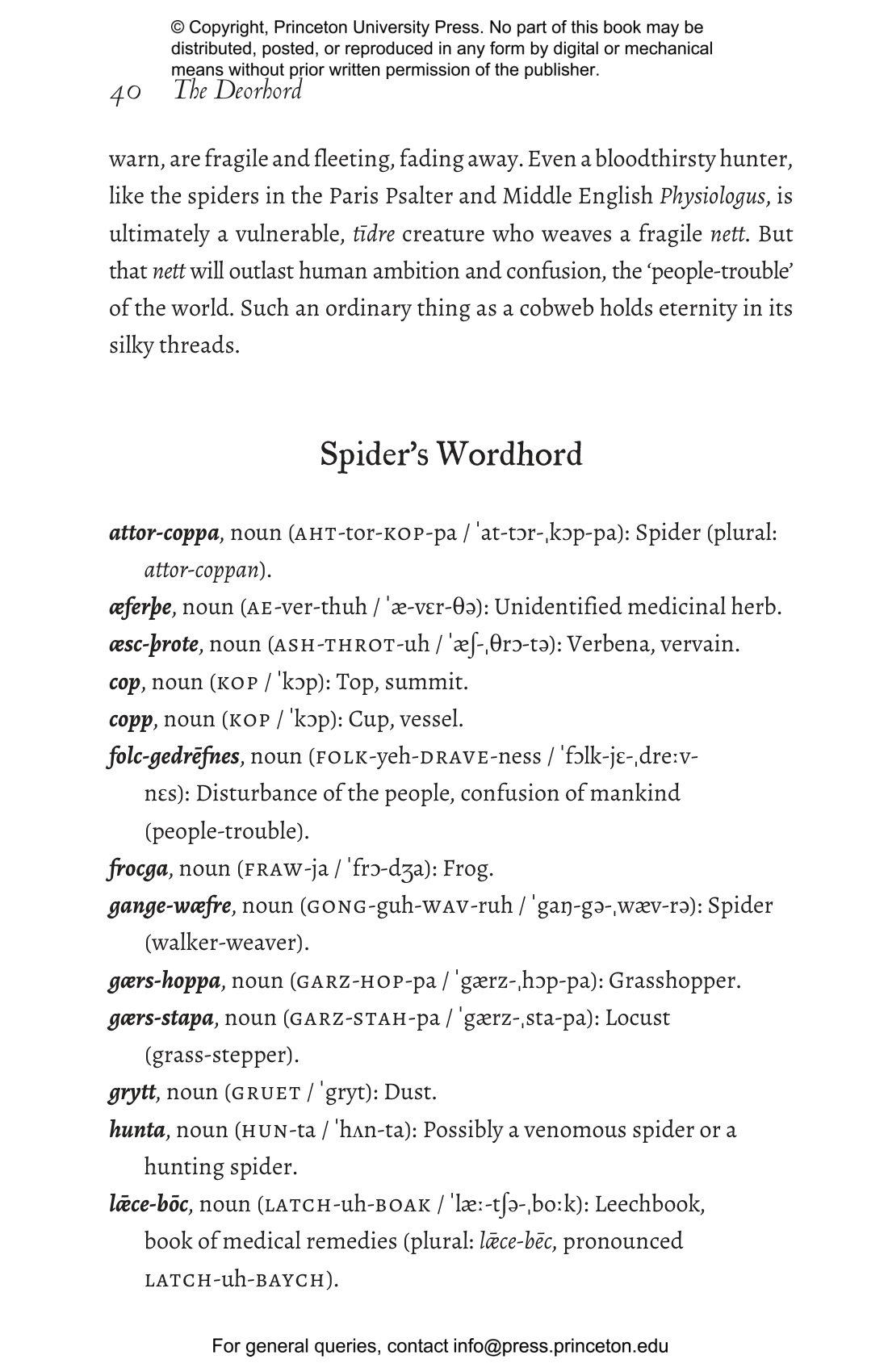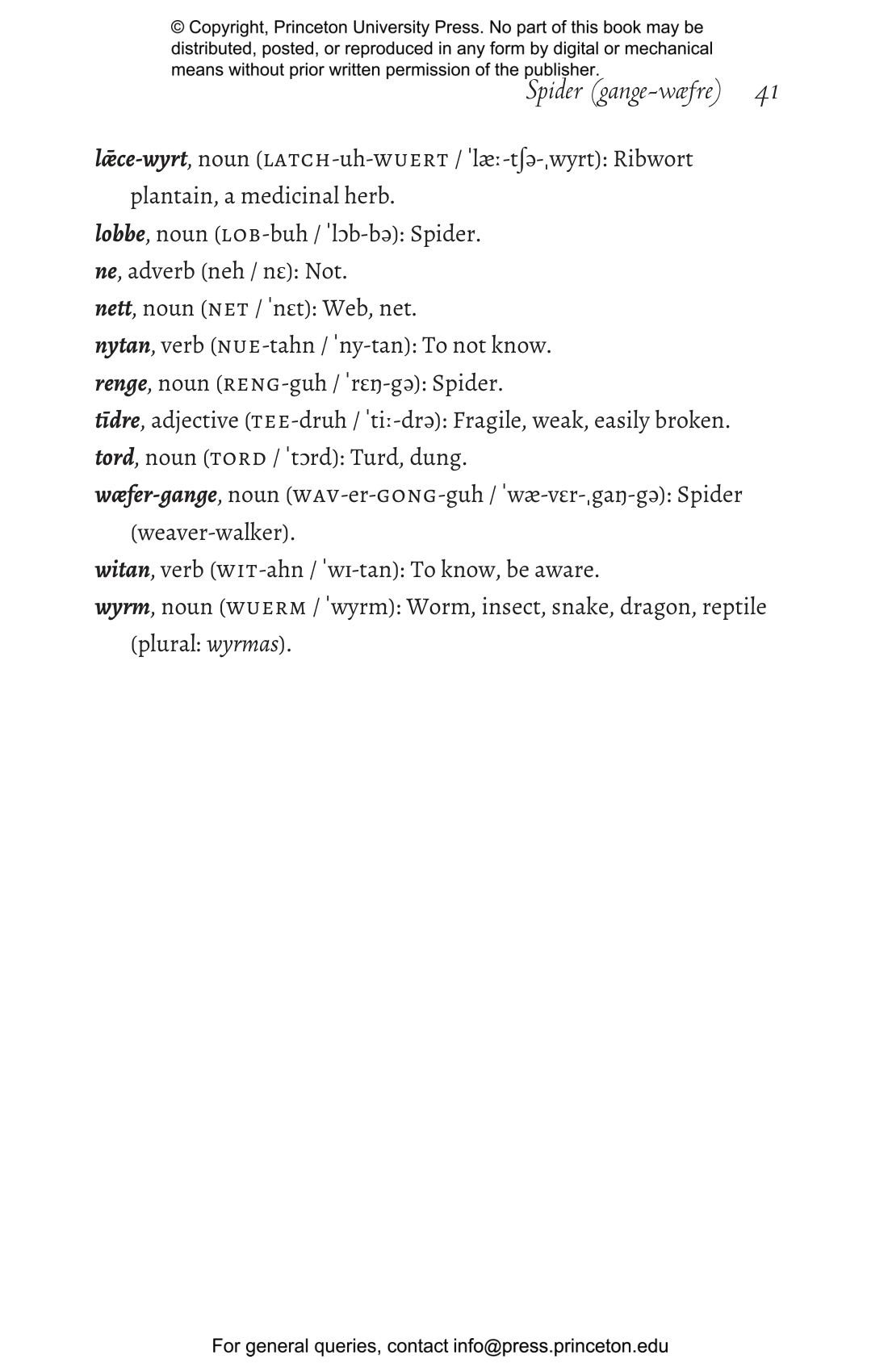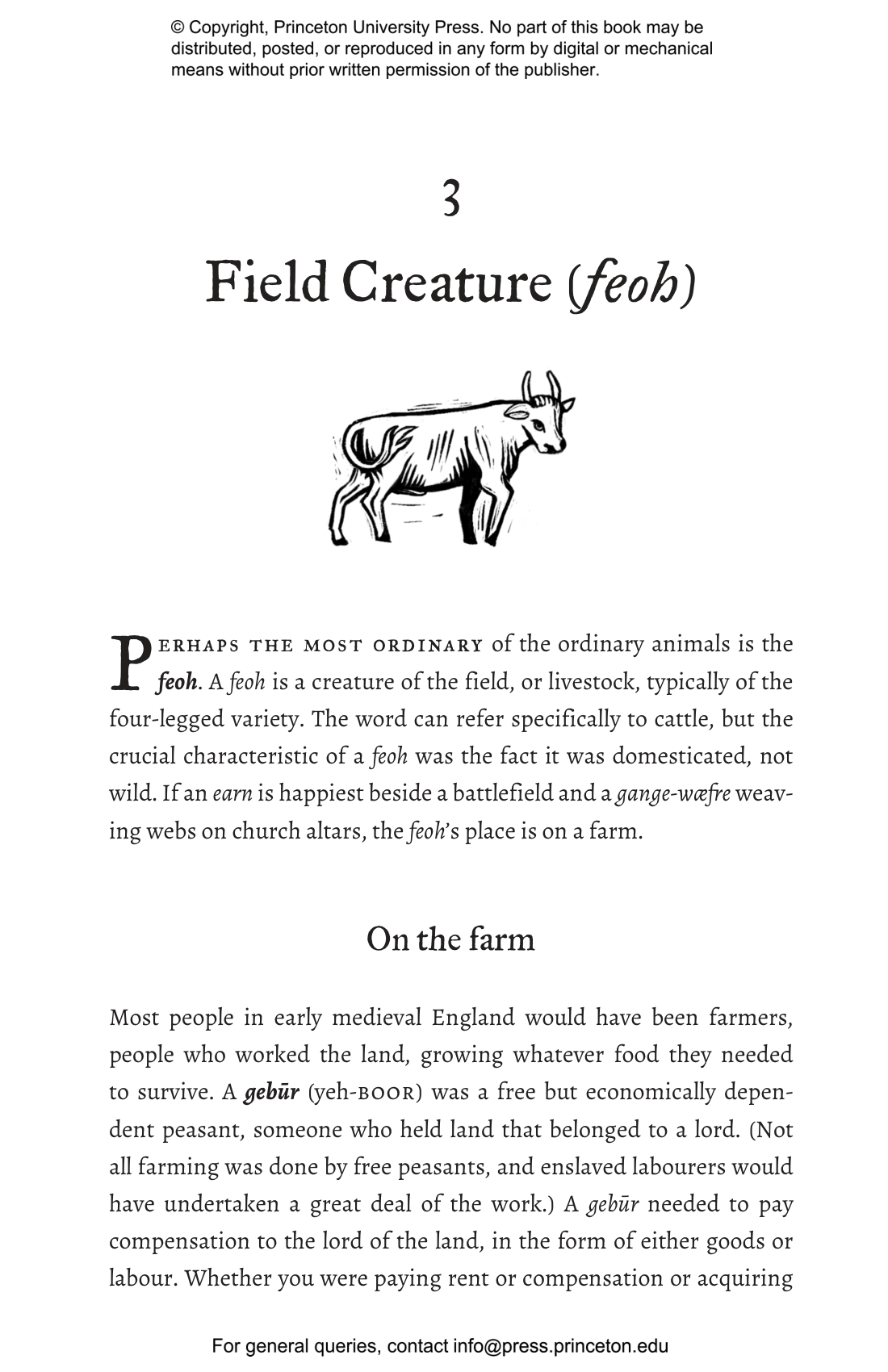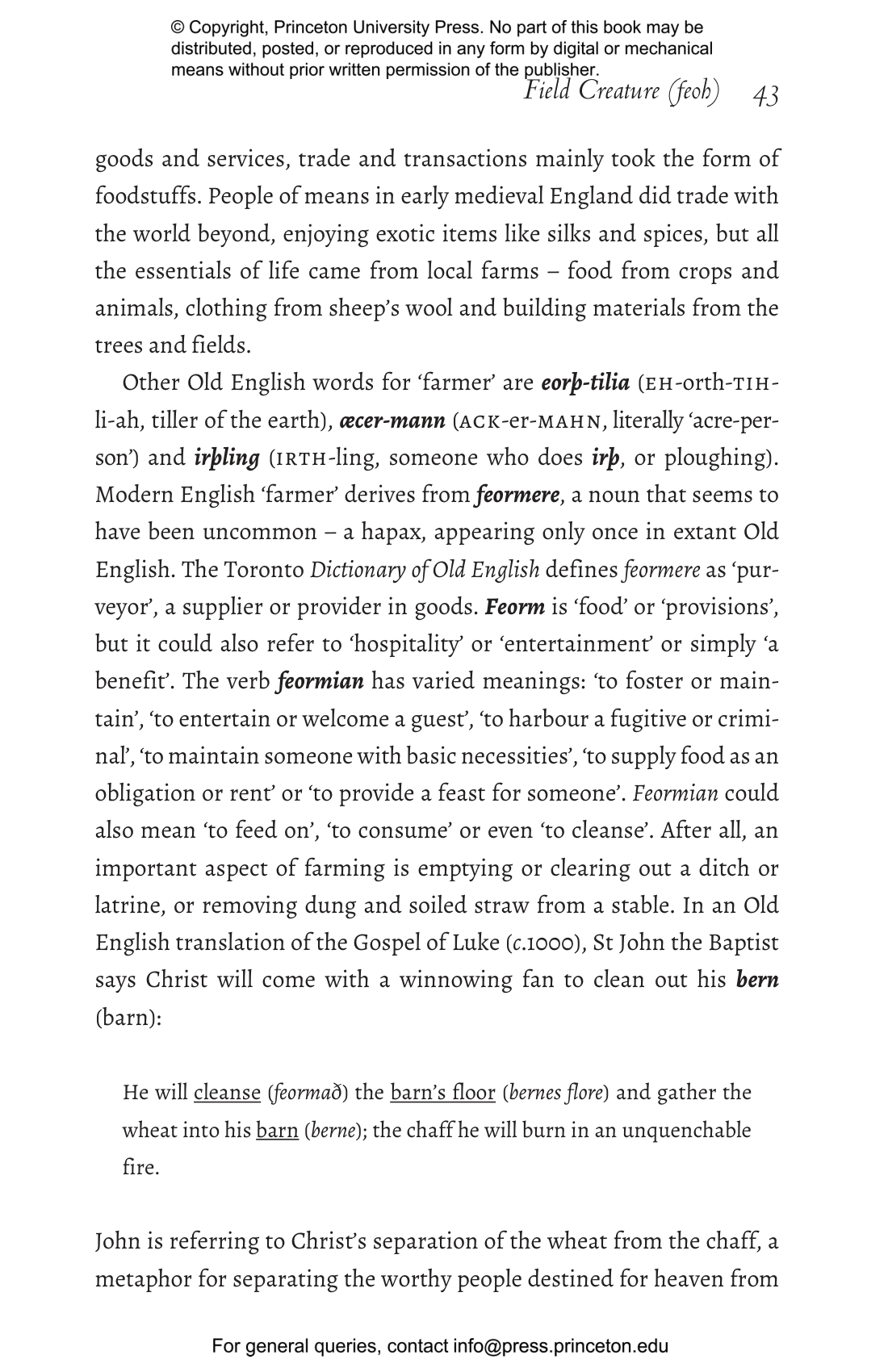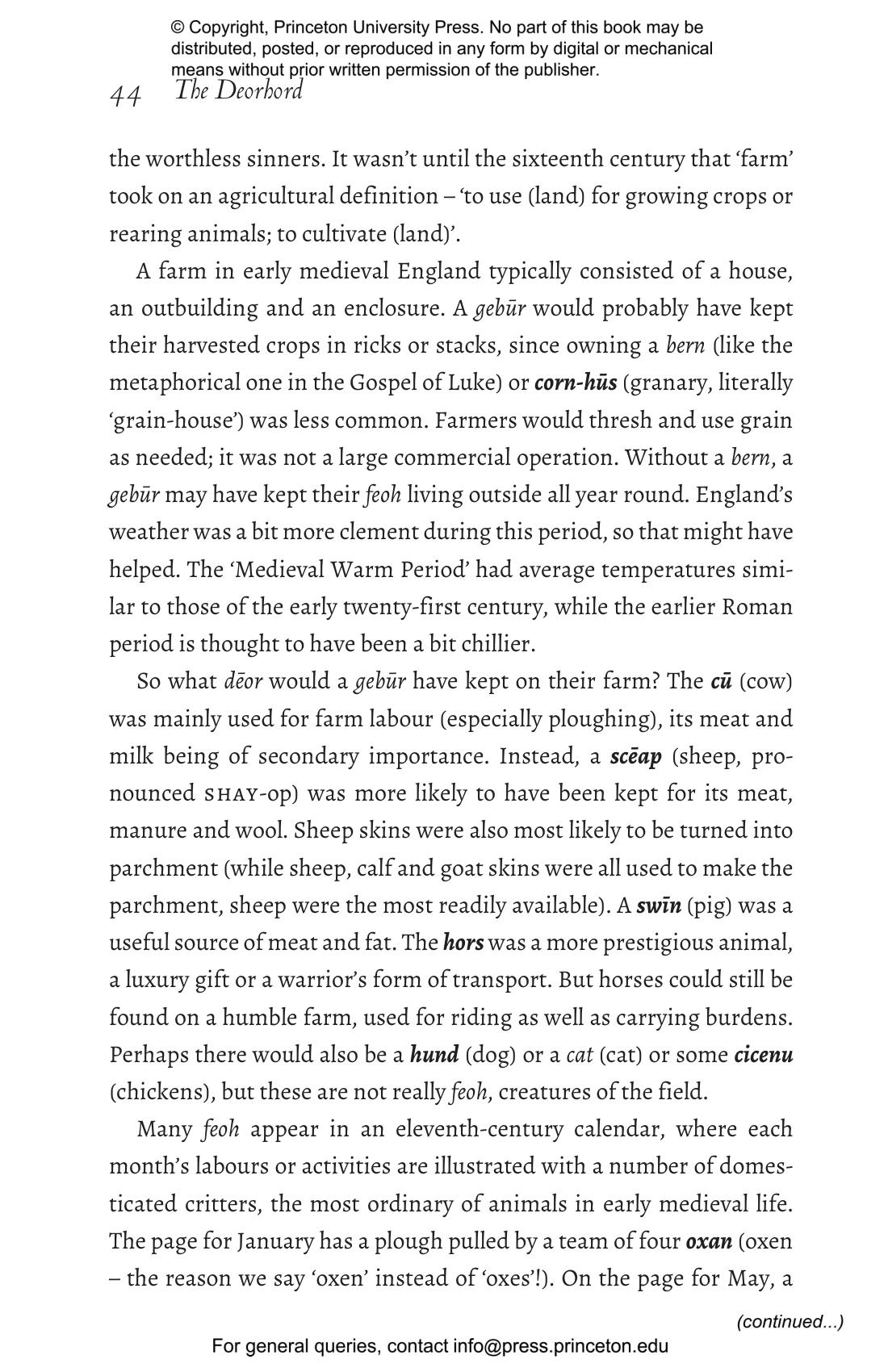Many of the animals we encounter in everyday life, from pets and farm animals to the wild creatures of field and forest, have remained the same since medieval times. But the words used to name and describe them have often changed beyond recognition, starting with the Old English word for âanimalâ itself, deor (pronounced DAY-or). In The Deorhord, Hana Videen presents a glittering Old English bestiary of animals real and imaginary, big and small, ordinary and extraordinaryâthe good, the bad, and the downright baffling.
From ²µ²¹²Ô²µ±ð-·Éæ´Ú°ù²¹²Ô or walker-weavers (spiders) and hasu-padan or grey-cloaked ones (eagles) to heafdu swelce mona or moon-heads (historians still donât know!), The Deorhord introduces a world both familiar and strange: where ants could be monsters and panthers could be your friends, where dog-headed men were as real as elephants, and where whales were as sneaky as wolves. The curious stories behind these words provide vivid insights into the language, literature, and lives of those who spoke Old Englishâthe language of Beowulfâmore than a thousand years ago.
A delightful journey through the weird and wonderful world of Old English, The Deorhord is a magical menagerie of new creatures and new words for the modern englisc reader to discover.
Hana Videen is a writer, a blogger, and the author of The Wordhord: Daily Life in Old English (Princeton). She holds a PhD in Old English from King’s College London, and has been hoarding Old English words since 2013, when she began tweeting one a day. Website: www.oldenglishwordhord.com.
"[A] whimsical book. . . . Come for the fascinating etymologies and stay for the repeated digs at Alexander the Great. The Deorhord has treasures aplenty for animal lovers and curious minds."âForeword Reviews
"In her second foray into the Old English lexicon and mindset . . . Hana Videen sets out to explore a world where animals hold sway. . . . Endlessly fascinating."âSimon Ings, The Spectator
"Logophiles of today will find pleasure in this delightful companion."âDerek Turner, The Lady
"[The Deorhord] presents its readers with both a history of bestiaries and of the many interesting, useful, and sometimes mysterious words used to describe the animals recorded therein."âJohannes Riutta, The Well-read Naturalist
"The Deorhord. . . is as fun as it is fascinating and deeply researched. . . . For lovers of language, animals, or history, Videen’s Deorhord contains much that will charm and delight."âKatherine Howell, National Review
"A very unique and creative book."âMedievalists.net
"An authoritative and accessible account of how non-human animal life was understood and represented in early medieval England. Videen manages an effective balance between the medieval, the contemporary, and the personal throughout The Deorhord, sounding a chord between the academic and the conversational that will appeal to a broad range of readerships. . . . Videen’s book is a masterclass in understatement, and the better and more effective for it."âMike Bintley, The Medieval Review
"No Old English bestiaries survive, but animals play a vibrant role in medieval stories, poems and riddles, so Hana Videen decided to create her own – or Deorhord (deor is Old English for animal). . . . The result is a fascinating, bizarre (gold-digging ants, hens that burst into flames), and delightfully detailed glimpse of the world of our distant ancestors."âDaily Mail
"A wonderful book in all senses. . . . An essential tool for any student of our past."—Nicola Griffith, author of Menewood
“A dream! I learnt something new and fascinating on every page.”—Lucy Mangan, author of Are We Having Fun Yet?
“If you love words, the weird and the wild, I guarantee you’ll crouch over this book like a dragon over gold.”—Meg Clothier, author of The Book of Eve
